Pope Francis has not accepted an invitation to meet with Vladimir Putin in Russia

VATICAN CITY (CNS) — Pope Francis has not accepted an invitation to travel to Moscow in June to meet with Vladimir Putin, the director of the Holy See press office said.
A report on the website of Intelligence Online, a French journal, “does not correspond to the truth,” Matteo Bruni told reporters March 20.
A story on the website March 19 had said Ivan Soltanovsky, the Russian ambassador to the Holy See, invited the pope to meet Vladimir Putin in Moscow in June, “an invitation that the pope accepted,” Intelligence Online had reported.
The journal said the pope, who repeatedly has been invited to visit Ukraine, would travel to Kyiv immediately after visiting Moscow.
After Russia launched its large-scale invasion of Ukraine in February 2022, Pope Francis said he would be willing to accept the invitation of the Ukrainian government to visit, but only if he could visit Moscow as well.
Earlier the Russian news agency RIA Novosti had reported that Pope Francis had congratulated Putin on his victory in the presidential election March 17, an election Western observers described as rigged. Bruni had told Catholic News Service March 18 that the report was not true.
The Vatican has repeatedly offered to act as a mediator between Ukraine and Russia, and last year Pope Francis sent his peace envoy for Ukraine, Italian Cardinal Matteo Zuppi of Bologna, to Kyiv, Moscow, Washington and Beijing to meet with foreign leaders and advance peace talks on Ukraine.
In early March, however, the pope caused consternation when segments of an interview were released in which he said Russia and Ukraine need to have the “courage of the white flag” to halt the fighting and negotiate.
The phrase “white flag” usually refers to surrendering, and Ukrainian leaders were outraged.
Pope Francis was not asking Ukraine to consider surrendering to Russia when he called for negotiations to end the war, but he was calling for both Russia and Ukraine to cease hostilities and engage in peace talks, said Cardinal Pietro Parolin, Vatican secretary of state.
At the end of his weekly general audience March 20, praying for peace in Ukraine and in the Holy Land, Pope Francis said, “War is always a defeat.”
“We must make every effort to discuss, to negotiate to end war,” he said. “Let’s pray for this.”


Most popular

Your source for jobs, books, retreats, and much more.
The latest from america

Pope Francis denies resignation rumors, says he hopes to visit Moscow and Kyiv
VATICAN CITY — Pope Francis has dismissed reports that he plans to resign in the near future, saying he is on track to visit Canada this month and hopes to be able to go to Moscow and Kyiv as soon as possible after that.
In an exclusive interview in his Vatican residence, Francis also denied rumors that he had cancer, joking that his doctors “didn’t tell me anything about it,” and for the first time gave details of the knee condition that has prevented him from carrying out some duties.
In a 90-minute conversation on Saturday afternoon, conducted in Italian, with no aides present, the 85-year-old pontiff also repeated his condemnation of abortion following the U.S. Supreme Court ruling last month.
Rumors have swirled in the media that a conjunction of events in late August, including meetings with the world’s cardinals to discuss a new Vatican constitution, a ceremony to induct new cardinals, and a visit to the Italian city of L’Aquila, could foreshadow a resignation announcement.
L’Aquila is associated with Pope Celestine V, who resigned the papacy in 1294. Pope Benedict XVI visited the city four years before he resigned in 2013, the first pope to do so in about 600 years.
But Francis, alert and at ease throughout the interview as he discussed a wide range of international and Church issues, laughed the idea off.
“All of these coincidences made some think that the same ‘liturgy’ would happen,” he said. “But it never entered my mind. For the moment no, for the moment, no. Really!”
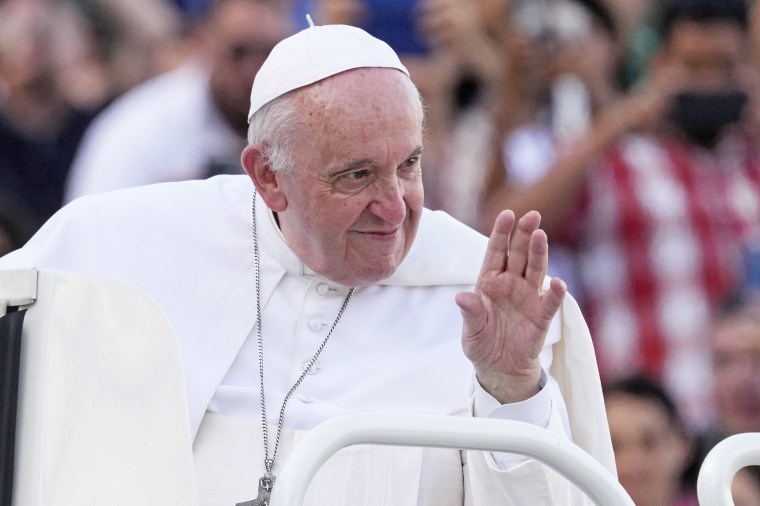
Francis did, however, repeat his often stated position that he might resign someday if failing health made it impossible for him to run the Church — something that had been almost unthinkable before Benedict XVI.
Asked when he thought that might be, he said: “We don’t know. God will say.”
Knee injury
The interview took place on the day he was to have left for Democratic Republic of Congo and South Sudan, a trip he had to cancel because doctors said he might also have to miss a trip to Canada from July 24-30 unless he agreed to have 20 more days of therapy and rest for his right knee.
He said the decision to cancel the Africa trip had caused him “much suffering,” particularly because he wanted to promote peace in both countries.
Francis used a cane as he walked into a reception room on the ground floor of the Santa Marta guest house where he has lived since his election in 2013, eschewing the papal apartment in the Apostolic Palace used by his predecessors.
The room has a copy of one of Francis’ favorite paintings: “Mary, Untier of Knots,” created around 1700 by the German Joachim Schmidtner.
Asked how he was, the pope joked: “I’m still alive!”
He gave details of his ailment for the first time in public, saying he had suffered “a small fracture” in the knee when he took a misstep while a ligament was inflamed.
“I am well, I am slowly getting better,” he said, adding that the fracture was knitting, helped by laser and magnet therapy.
Francis also dismissed rumors that a cancer had been found a year ago when he underwent a six-hour operation to remove part of his colon because of diverticulitis, a condition common in the elderly.
“It (the operation) was a great success,” he said, adding with a laugh that “they didn’t tell me anything” about the supposed cancer, which he dismissed as “court gossip.”
But he said he did not want an operation on his knee because the general anaesthetic in last year’s surgery had had negative side-effects.
Papal trip to Moscow?
Speaking of the situation in Ukraine, Francis noted that there have been contacts between Vatican Secretary of State Cardinal Pietro Parolin and Russian Foreign Minister Sergei Lavrov about a possible trip to Moscow.
The initial signs were not good. No pope has ever visited Moscow, and Francis has repeatedly condemned Russia’s invasion of Ukraine; last Thursday he implicitly accused it of waging a “cruel and senseless war of aggression.”
When the Vatican first asked about a trip several months ago, Francis said Moscow replied that it was not the right time.
But he hinted that something may now have changed.
“I would like to go (to Ukraine), and I wanted to go to Moscow first. We exchanged messages about this because I thought that if the Russian president gave me a small window to serve the cause of peace ...
“And now it is possible, after I come back from Canada, it is possible that I manage to go to Ukraine,” he said. “The first thing is to go to Russia to try to help in some way, but I would like to go to both capitals.”
Abortion ruling
Asked about the U.S. Supreme Court’s ruling overturning the landmark Roe v. Wade ruling that guaranteed s constitutional right to abortion, Francis said he respected the decision but did not have enough information to speak about it from a juridical point of view.
But he strongly condemned abortion, comparing it to “hiring a hit man.” The Catholic Church teaches that life begins at the moment of conception.
“I ask: Is it legitimate, is it right, to eliminate a human life to resolve a problem?”
Francis was asked about a debate in the United States over whether a Catholic politician who is personally opposed to abortion but supports others’ right to choose should be allowed to receive the sacrament of communion.
House of Representatives speaker Nancy Pelosi, for example, has been barred by the conservative archbishop of her home diocese of San Francisco from receiving it there, but is regularly given communion at a parish in Washington, D.C. Last week, she received the sacrament at a papal Mass in the Vatican.
“When the Church loses its pastoral nature, when a bishop loses his pastoral nature, it causes a political problem,” the pope said. “That’s all I can say.”
- International
June 27, 2023 - Russia-Ukraine news
By Kathleen Magramo , Sana Noor Haq, Ed Upright, Adrienne Vogt , Aditi Sangal , Mike Hayes, Maureen Chowdhury and Tori B. Powell , CNN
The Pope's peace envoy will visit Moscow this week
From John Allen in Rome
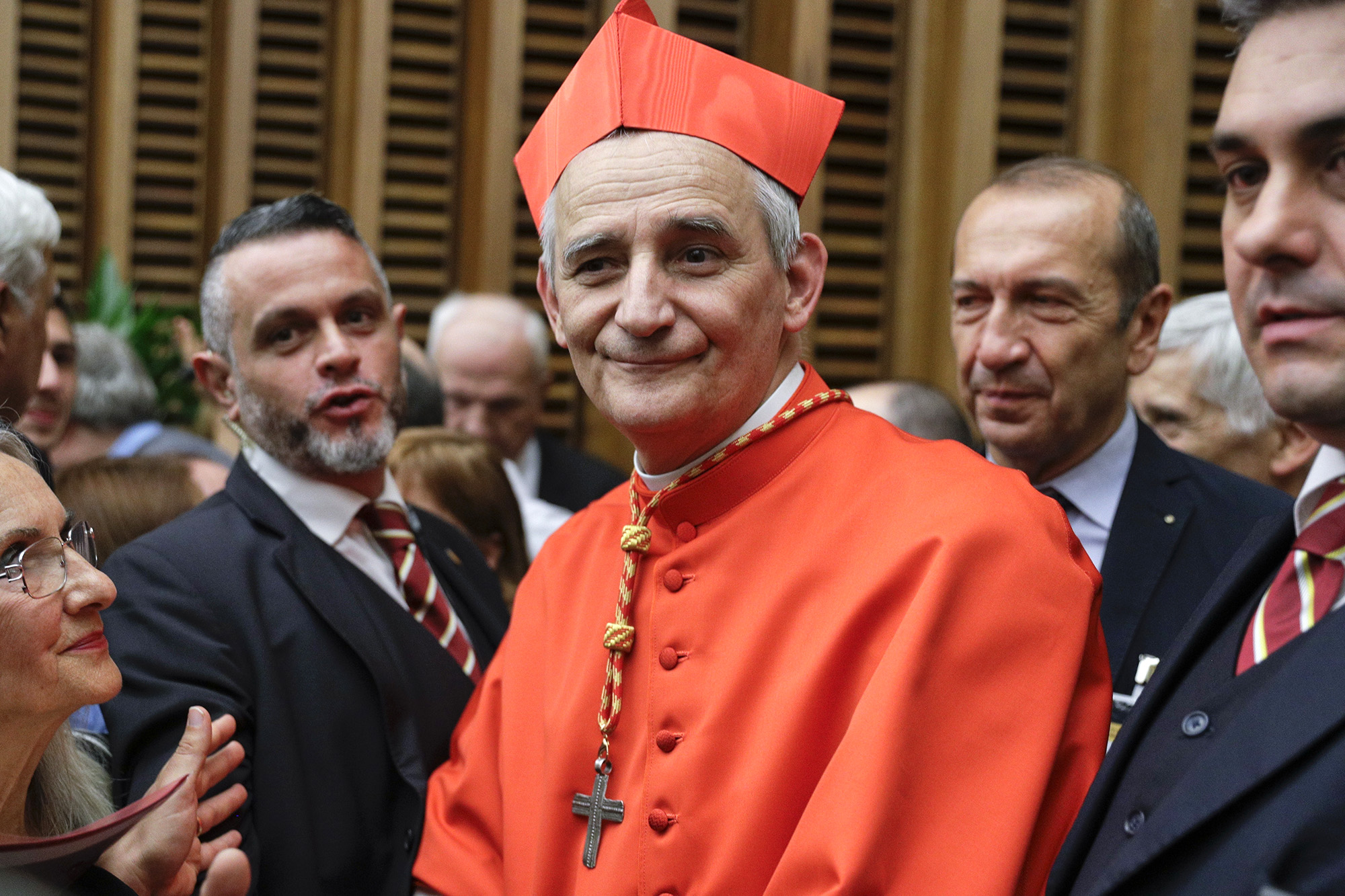
Pope Francis' peace envoy will travel to Moscow on Wednesday and Thursday this week, according to a statement from the Vatican Press Office.
"Cardinal Matteo Maria Zuppi, Archbishop of Bologna and President of the Italian Episcopal Conference, accompanied by an official of the Secretariat of State, will undertake a visit to Moscow, as the envoy of Pope Francis," the Vatican statement said.
"The principal scope of the initiative is to encourage gestures of humanity, which can contribute to favoring a solution to the current tragic situation and to finding paths to reach a just peace," it added.
Putin to speak to law enforcement units who stopped attempted Wagner mutiny
From CNN's Anna Chernova
President Vladimir Putin will today address the security forces that participated in Moscow's defensive efforts against the Wagner group mutiny on Saturday.
The event with invited law enforcement squads will take place in Cathedral Square inside the Kremlin, according to government spokesman Dmitry Peskov.
Russian Defense Minister Sergei Shoigu has appeared in the Kremlin ahead of the expected address.
Putin confirms deaths of Russian pilots in Wagner clashes
From CNN's Katharina Krebs
President Vladimir Putin praised the "courage and self-sacrifice" shown by Russian army pilots who died while fighting against Wagner troops over the weekend, after paramilitary chief Yevgeny Prigozhin led a failed insurrection against the Kremlin.
"I thank all our military personnel, law enforcement officers, special services who stood in the way of the rebels, remained faithful to their duty, oath and their people," he said in a national address on Monday.
"The courage and self-sacrifice of the fallen heroes-pilots saved Russia from tragic devastating consequences," he added.
Prigozhin said earlier that "not a single solider on the ground was killed," during his march toward Moscow on Saturday.
“We regret that we were forced to strikes on aircraft,” he said on Monday, adding: “But these aircraft dropped bombs and launched missile strikes.”
CNN's Mariya Knight in Atlanta and Anna Chernova contributed reporting.
Lukashenko addresses Belarus' involvement in stifling Wagner rebellion
From CNN’s Anna Chernova
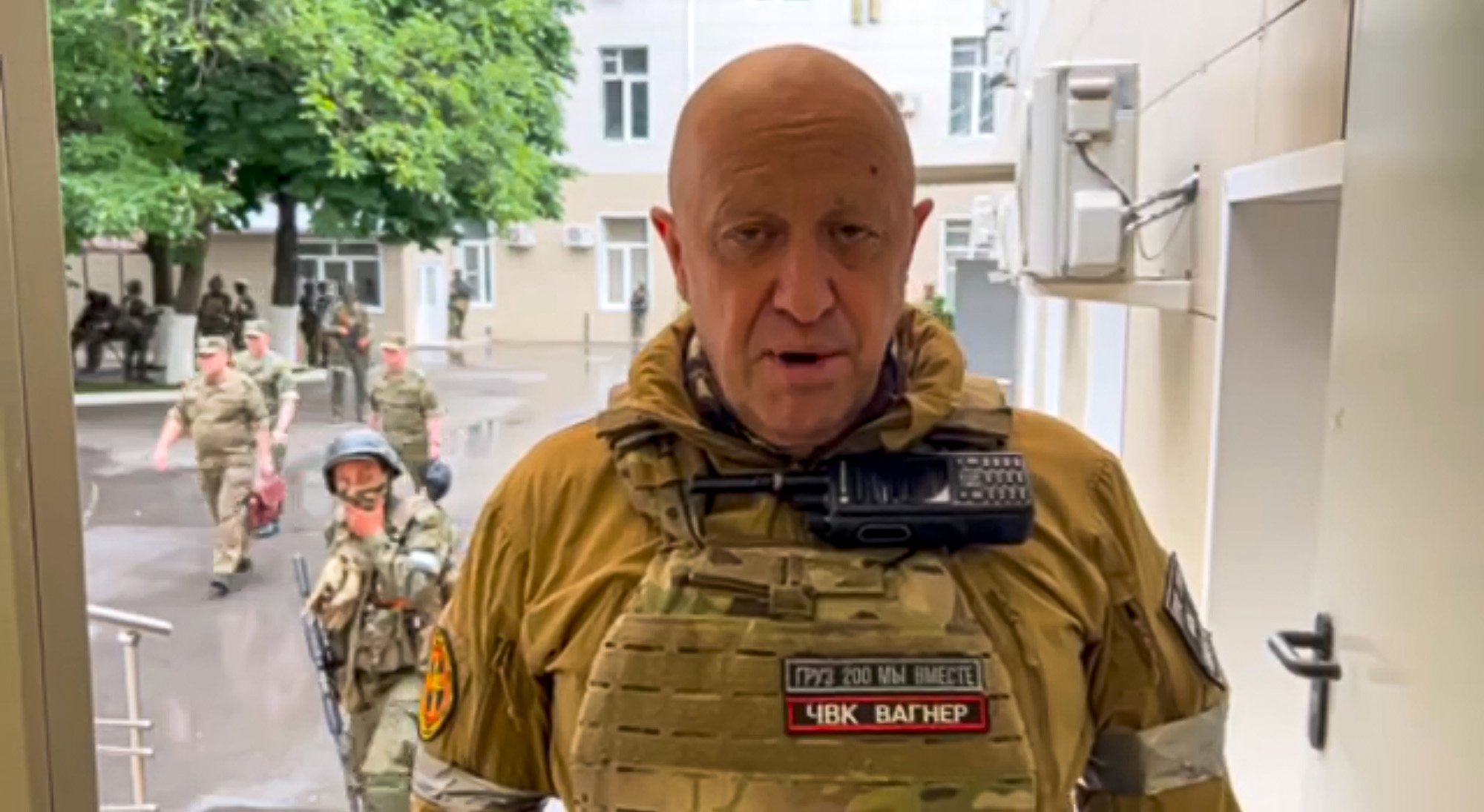
Belarusian President Alexander Lukashenko has highlighted his purported role in quelling the Wagner group's armed rebellion attempt against the Kremlin at the weekend, speaking about a deal between Moscow, Minsk and Wagner that has been shrouded in secrecy.
Lukashenko did not offer many details about the mediation, which led to paramilitary chief Yevgeny Prigozhin turning his fighters away from Moscow because he claimed he wanted to avoid spilling Russian blood.
“Given the role of Belarus in resolving this situation, I must say a few words here about what happened and explain our position and the decisions taken,” Lukashenko said, referring to the deal.
Lukashenko, who has a political track record of cracking down on dissent, claimed the Belarusian opposition was trying to make use of the situation.
"When the events in Russia took place, I gave all the orders to bring the army to full combat readiness,” he said.
“No one, not even in these snotty Telegram channels, blathered against it.
“All the [Belarusian] Armed Forces, including the police and special forces, were put on full alert,” he added.
“In no case should you make a hero out of me, neither of me, nor of [Vladimir] Putin, or of [Yevgeny] Prigozhin, because we missed the situation, and then we thought that it would resolve, but it did not resolve. And two people who fought at the front collided.
Russia says it will drop charges against Wagner for armed insurrection attempt
From CNN's Maria Kostenko, Clare Sebastian and Lauren Kent
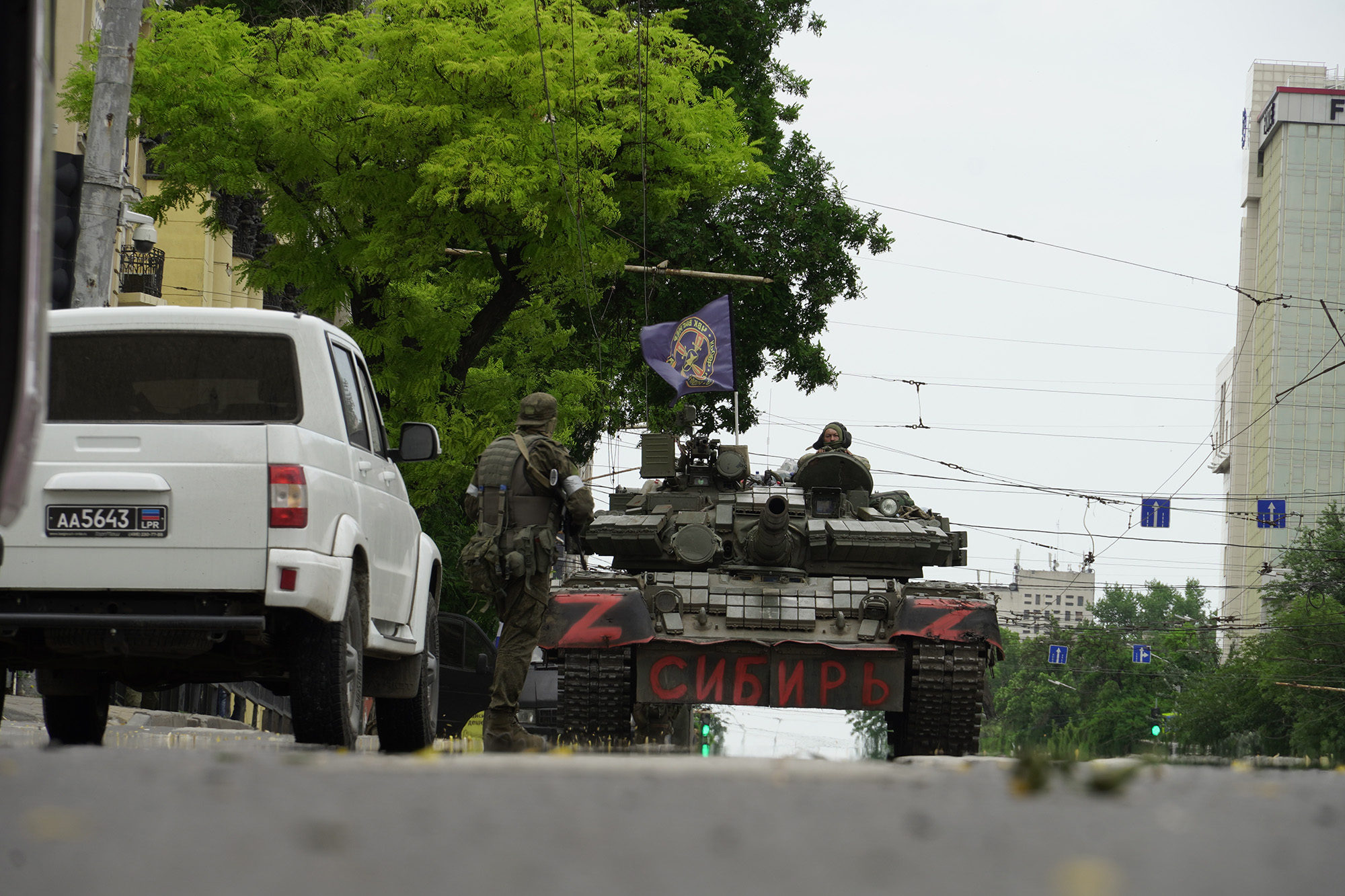
Russia's Federal Security Service (FSB) said on Tuesday that it will drop the case against the Wagner paramilitary group, after its fighters staged an attempted rebellion on Saturday that threatened President Vladimir Putin’s grip on power.
"The case of the armed insurrection armed was dropped on June 27, the FSB said," state media RIA Novosti reported.
"During the investigation of the case of the rebellion, it was established that its participants stopped their actions directly aimed at committing a crime, the case was closed," the FSB press service said in a statement on Tuesday.
The statement did not mention Wagner leader Yevgeny Prigozhin by name.
Wagner will also hand over its heavy military equipment to active units of the Russian military, the Russian Defense Ministry said on Tuesday, according to RIA Novosti.
On Monday, Wagner leader Yevgeny Prigozhin claimed that the mercenary group was due to leave its positions on June 30 and hand over equipment to the Southern Military District in Rostov, Russia.
However, he claimed Moscow's troops attacked Wagner forces on Friday, days before that handover was due to take place.
Belarus president says it was "painful to watch the events that took place in the south of Russia"
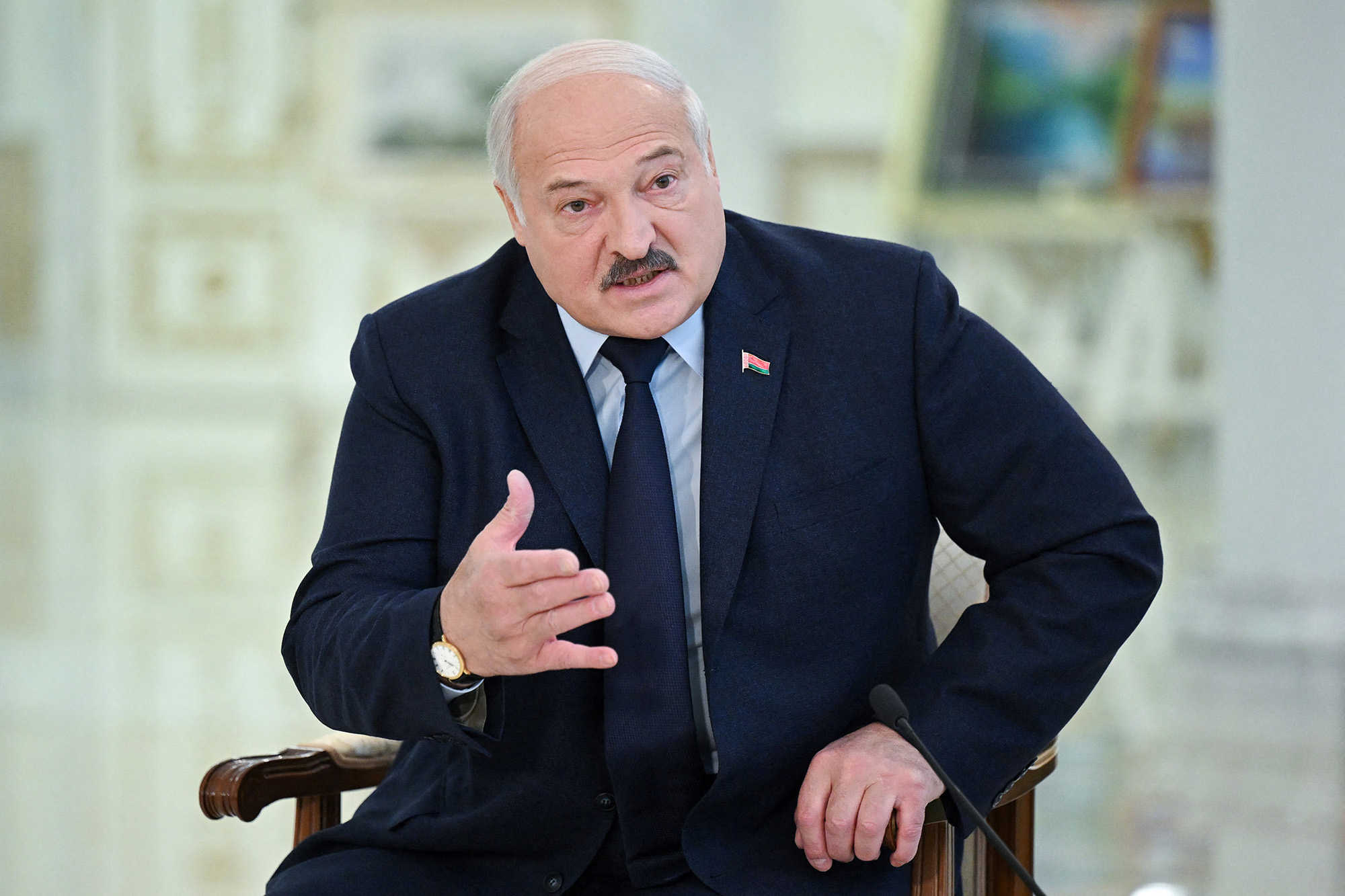
Belarusian President Alexander Lukashenko declared it was "painful to watch" Wagner boss Yevgeny Prigozhin's attempted insurrection over the weekend, in his first address since the most serious leadership challenge to ally Russian President Vladimir Putin.
“I won’t hide it, it was painful to watch the events that took place in the south of Russia," he said during an epaulette-giving ceremony in Minsk.
"Not only for me. Many of our citizens took them close to heart. Because there is only one fatherland," he added, according to Belarusian state news agency, BelTA. The comments were not televised nor have yet appeared in video clips.
Lukashenko did not make any reference to Prigozhin by name or say anything about his whereabouts. The Wagner head has not been seen in public since he called off his uprising on Saturday.
The Belarus president also said he had made military preparations during the events of the weekend. “I gave all orders to bring the army to full combat readiness,” he said.
Some background: Lukashenko, often referred to as "Europe's last dictator" purportedly had a hand in quelling the threat of mutiny on Saturday.
Prigozhin abruptly halted Wagner's advance, claiming his fighters had reached within 200 kilometers (124 miles) of Moscow but were retreating to avoid Russian bloodshed.
Lukashenko apparently made a deal with Prigozhin that would see the Wagner chief leave for Belarus; a criminal case against the mercenary boss would be dropped; and Wagner fighters would be folded into formal military structures by signing contracts with the Russian Ministry of Defense.
The decision followed an unprecedented intervention by Lukashenko himself, according to the Belarusian presidential press service. However, Russian and Belarusian officials have remained tightlipped on the details of the supposed deal.
Analysis: Biden turns the screw on Putin even as US denies role in Wagner rebellion
Analysis from CNN's Stephen Collinson
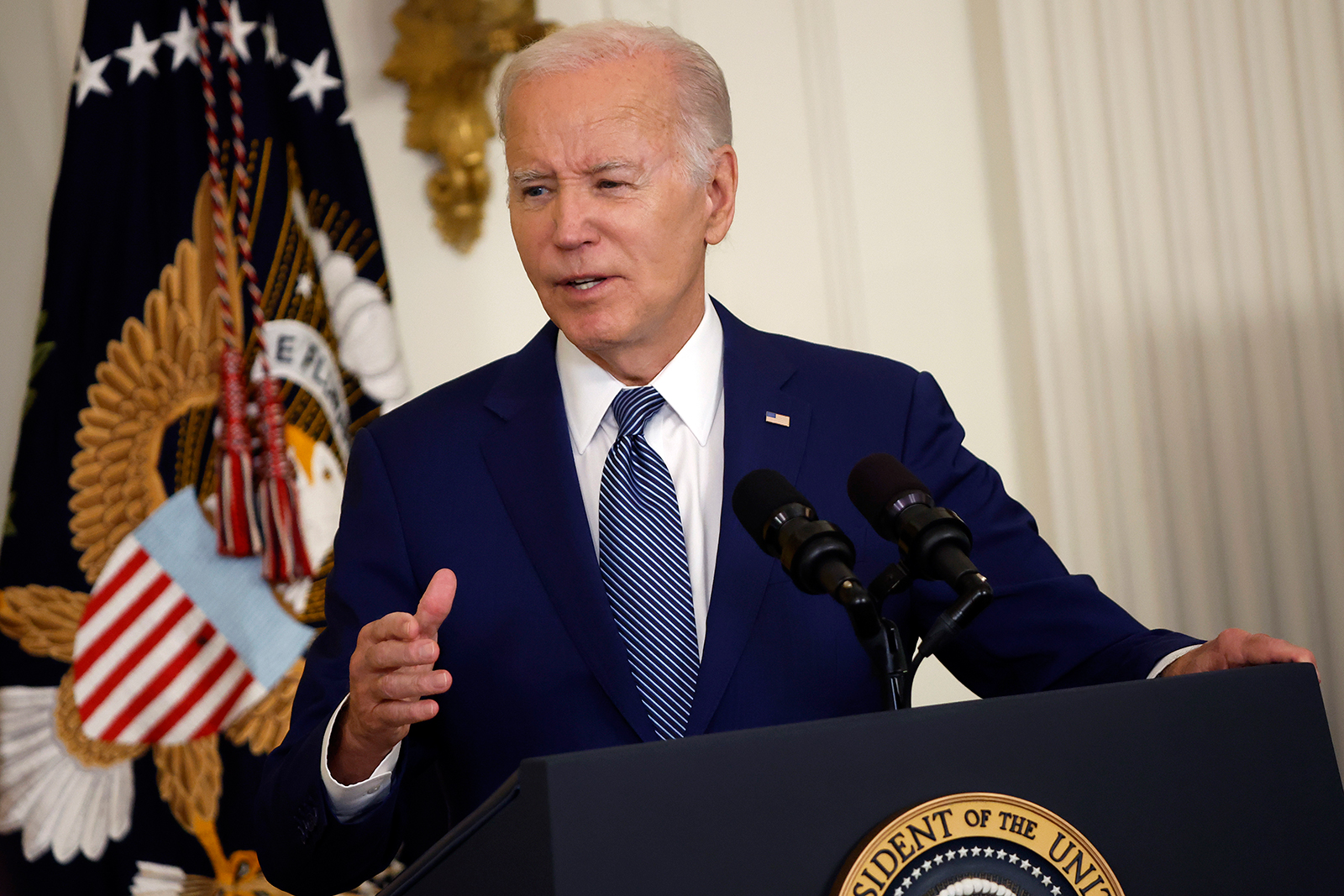
Russia’s short-lived insurrection has handed Joe Biden the most perilous version yet of a dilemma that has confounded the last five US presidents: how to handle Vladimir Putin .
Every US commander in chief since Bill Clinton has sought in some way to engage the former KGB officer, whose mission to restore Russian greatness was ignited by his humiliation at the fall of the former Soviet Union. Most have sought some kind of reset of US-Russia relations. But all failed to avert the plunge in ties between the two nuclear superpowers.
Biden, who came of age in Washington as a senator during some of the most embittered years of the US-Soviet standoff in the 1970s and 1980s, had fewer illusions about Putin than most. But even he tried to break the chill, by meeting his counterpart at a summit in Geneva in 2021.
Russia’s invasion of Ukraine, however, led him instead to reinvigorate the NATO alliance with an extraordinary pipeline of arms and ammunition designed to ensure the country’s survival. Western support has not only enabled Ukraine to fight back against invading forces, it has helped turn the war into a quagmire that spiked political pressure on Putin and created battlefield conditions that likely helped lead to mercenary chief Yevgeny Prigozhin’s revolt over the weekend.
Putin appeared on camera on Monday, defiantly warning that he would have had no trouble suppressing the uprising had the Wagner Group leader not chosen to halt his march on Moscow in a deal that ostensibly will see him exiled to Belarus.
But there was widespread agreement outside Russia that the showdown represented the most serious challenge to Putin’s grip on power during his generation in control and could even be a crack that spells the beginning of the end of his authority.
So Biden, therefore, faces a possibility that none of the predecessors who wrestled with Putin had to contemplate — that he is dealing with the endgame of this modern czar, and the prospect of instability rocking a nuclear superpower that could have global implications.
Read the full analysis here.
It's early morning in Moscow. Here's what you need to know about the situation in Russia
From CNN staff
In an address to the Russian nation Monday, President Vladimir Putin said Wagner's uprising "would have been suppressed anyway," but thanked mercenary fighters who made the "right decision" by halting their advance.
He then offered them a choice: sign contracts with Russia's Defense Ministry or other law enforcement, return to their families, or: "Whoever wants to can go to Belarus," he said.
Wagner's march was called off over the weekend when a supposed deal was struck that would see its chief, Yevgeny Prigozhin , move to Belarus.
Putin did not mention Prigozhin by name in his address Monday, but accused rebellion organizers of "betraying their country."
A source at Russia's Prosecutor General’s Office said Prigozhin remains under investigation . His whereabouts are unknown.
Here are the latest headlines on the rebellion and Russia's war in Ukraine:
- Putin meets top officials: The Russian President held a meeting with the heads of security agencies including Defense Minister Sergei Shoigu, a Kremlin spokesperson said Monday, according to state media. Prigozhin had previously accused Shoigu and Russia’s top general of not giving his forces ammunition and was critical of their handling of the conflict in Ukraine. Putin also spoke with the UAE's President about the rebellion , the Kremlin said.
- Wagner chief's reasoning: Earlier Monday, Prigozhin broke his silence in an audio message, saying he called off the march to prevent Russian bloodshed and the uprising was a protest — not an attempt to topple the government. He said the Russian Defense Ministry had planned for Wagner to "cease to exist" from July 1.
- US response: As Russia faced rebellion, White House officials reached out to foreign and domestic oil producers about the situation unfolding in one of the world’s leading oil powers, a US official told CNN. On Monday, US President Joe Biden said he'd instructed members of his national security team to "prepare for a range of scenarios." Biden emphasized the US and its allies had "nothing to do" with Saturday's events in Russia.
- Lukashenko to speak: Belarusian state media said President Alexander Lukashenko will answer questions from reporters on Tuesday, according to Russian state media. Prigozhin had agreed Saturday to leave Russia for Belarus, the Kremlin said, in a deal apparently brokered by Lukashenko, a close Putin ally.
- US intel aware: US intelligence officials were gathered an extremely detailed and accurate picture of Prigozhin's plans leading up to his rebellion , including where and how Wagner was planning to advance, sources familiar with the matter told CNN. But the intelligence was so closely held that it was shared only with select allies, including senior British officials, and not at the broader NATO level, sources said.
- State Duma says defenses in control: The Russian State Duma, or lower parliament, said the defense forces exercised total control during the rebellion , according to Russian state media. Andrey Kartapolov, the Duma's head of the Defense Committee, said, "no chaos arose in the Russian defense forces in the background of an attempted armed rebellion, combat control was not interrupted even for a minute."
- Kyiv claims advances: President Volodymyr Zelensky said Ukrainian forces have made advances on all fronts . The remarks followed his visit to the front lines in the Donetsk region on Monday. Ukraine's military said separately that Russia was focusing its efforts on cities in the eastern region.
Pope's envoy in Moscow to meet Russian Patriarch
By Linda Bordoni and Salvatore Cernuzio
"As you know, the mission that the Holy Father Francis has entrusted to His Eminence Cardinal Zuppi is to identify and encourage humanitarian initiatives that will enable us to start on a path that, we hope, will lead to the much-desired peace”.
With these words, Archbishop Giovanni D’Aniello, the apostolic nuncio in Moscow briefed journalists after Cardinal Zuppi’s meeting with Yuri Ushakov, President Vladimir Putin's advisor for foreign policy issues.
This, the archbishop said, “was discussed yesterday in the meeting His Eminence had with Mr Uchakov.”
Top-level meetings
He also revealed that the Pope’s envoy will meet Maria Alekseyevna Lvova-Belova, Commissioner for Children's Rights and that in the afternoon, there will be a meeting with His Holiness Patriarch Kirill.
The focus of the meeting with the Commissioner for Children’s Rights is the issue of the over 19,000 Ukrainian children who have been deported to Russia, an issue on which President Zelensky had asked the Holy See for help during his audience with Pope Francis in May.
“On Thursday evening His Eminence will preside a solemn Eucharistic concelebration in the Cathedral dedicated to the Mother of God, where he will meet the Catholic community, to whom he will convey the Holy Father's greetings, closeness and prayers,” he said, noting that “tomorrow, in the early afternoon, His Eminence will return to Rome."
Cardinal Zuppi, the President of the Italian Episcopal Conference, is in Moscow on a three-day mission on the Pope’s behalf (28-30 June) to find “ways for a just peace”.
The power of prayer
The first and only image to reach us so far two days into his mission as the Pope’s envoy to Moscow, is a photograph of the Cardinal kneeling before a Marion icon: it represents Our Lady of Vladimir, also known as the Mother of Tenderness, and is the oldest Marian icon in Russia, displayed in the Tretyakov Gallery, not far from the Kremlin.
Prayer, therefore, is first and foremost in Cardinal Zuppi’s mission, now in its second stage after the one to Kyiv last 5-6 June.
On that occasion, the Cardinal had met President Volodymir Zelensky. In Moscow on Wednesday he was received by Yuri Ushakov, President Vladimir Putin's advisor for foreign policy issues.
The 76-year-old diplomat is the former Russian ambassador to the United States from 1998 to 2008.
Russia welcomes initiative
On Wednesday, according to Russian press agencies, including Interfax which quoted a comment by Kremlin spokesman, Dimitry Peskov, the talks focused on the conflict in Ukraine and “possible ways for a political and diplomatic solution”.
During a briefing following the meeting between Zuppi and Ushakov, Peskov said: 'In general, we have already stated several times that we highly value the efforts and initiatives of the Vatican in looking for a peaceful solution to the Ukrainian crisis. We welcome this willingness of the Pope to contribute to ending the armed conflict in Ukraine”.
Cardinal Zuppi then met in the afternoon with the Catholic bishops of Russia at the Nunciature, headed by Archbishop Giovanni D'Aniello.
In an interview with Vatican News, the Metropolitan Archbishop of the Archdiocese of the Mother of God in Moscow said that at the end of Cardinal Zuppi's mission, it may be possible to see "concrete gestures such as a new exchange of prisoners or the announcement of initiatives to support the many refugees and fugitives that this conflict is causing."
Archbishop Paolo Pezzi also spoke of the possibility of a meeting between Cardinal Zuppi and the Orthodox Patriarch Kirill: "The Christian faith knows the path of reconciliation and forgiveness; it knows the witness of peace lived in one's own heart, in families, among peoples.,” he said.
“This is why,” the prelate continued, “there is a need for the involvement of religious leaders in this dialogue. According to my information, Cardinal Zuppi is expected to meet with the Russian Orthodox Patriarch Kirill. If so, it will be a truly important occasion”.
Thank you for reading our article. You can keep up-to-date by subscribing to our daily newsletter. Just click here

More upcoming events:
The Pope's Agenda

Listen to our podcasts

Subscribe to our newsletters
To get the latest news

Papal audiences

Daily readings

Saint of the day

Advertisement
Free Newsletters
Sign up now
Pope meets with new Russian ambassador as second Moscow mission planned for his Ukraine peace
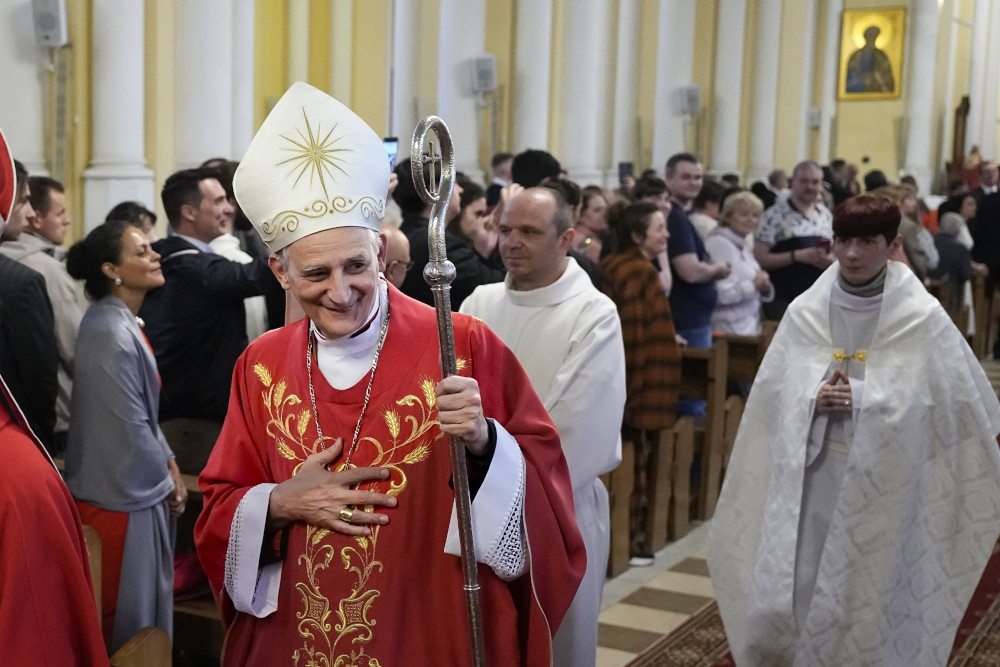
Cardinal Matteo Zuppi, head of the CEI (Italian Conference of Bishops), welcomes parishioners after celebrating Mass at the Cathedral of the Immaculate Conception in Moscow, on June 29, 2023. Pope Francis’ Ukraine peace envoy, Zuppi, went to China on the fourth leg of a mission that had already brought him to Kyiv, Moscow and Washington. (AP Photo/Alexander Zemlianichenko, file)
Paolo Santalucia
View Author Profile
Nicole Winfield
Associated Press
Join the Conversation
Russia’s new ambassador to the Vatican met Sept. 18 with Pope Francis for a protocol visit, as signs emerged that the Vatican's Ukraine peace envoy could soon be undertaking a second mission to Moscow.
The Vatican said Ambassador Ivan Soltanovsky was presenting his credentials to Francis, signaling the official start of his term. His motorcade was seen leaving the Russian embassy the morning of Sept. 18, bound for the Vatican, and returning about two hours later.
Soltanovsky replaced Ambassador Alexander Avdeev, whom Francis met with on Feb. 25, 2022 in a remarkable in-person papal visit to the embassy the day after Moscow’s forces invaded Ukraine.
The credential presentation appointment comes after Russian Foreign Minister Sergey Lavrov said in recent days that Moscow was ready to meet again with Francis’ Ukraine peace envoy, Cardinal Matteo Zuppi, a veteran of the Catholic Church's peace initiatives.
"The Vatican is continuing its efforts. The papal envoy will come back (to Russia) soon," Lavrov said Sept. 15 at a roundtable discussion on Ukraine.
Since Zuppi was appointed in May, he has visited Kyiv, Moscow, Washington and Beijing. Initially his mandate appeared limited to measures to try to reunite Ukrainian children taken to Russia after Moscow’s invasion. But during his meeting last week in Beijing with Li Hui, China’s special representative for Eurasian affairs, the resumption of stalled grain exports from Ukraine's Black Sea ports was also discussed.
Upon his return to Italy, Zuppi said the Beijing meeting represented an important exchange of ideas and he also voiced optimism at Lavrov’s "positive" opening to a second visit. During his first trip to Moscow in June, Zuppi met with Russia's minister for children's rights, Maria Lvova-Belova, and an adviser to Russian President Vladimir Putin.
The International Criminal Court issued an arrest warrant in late March for Lvova-Belova and Putin, accusing them of abducting children from Ukraine. Russian officials have denied any forced adoptions, saying some Ukrainian children are in foster care.
Zuppi told the TG2000 broadcaster of the Italian bishops conference this weekend that Lavrov’s openness to a second meeting was "important because peace is made through dialogue and finding the possible and necessary spaces. It’s certainly a positive declaration and goes in the direction hoped for by Pope Francis."
Francis has followed the Holy See’s tradition of neutrality in conflicts by trying to keep open paths of dialogue with both Ukraine and Russia. His stance, and admiration for Russia's imperial past and culture, has at times angered Ukraine, especially its Greek Catholic flock.
Most Read Stories

#1 Catholic students, theologians, ministers write an open letter to Pope Francis

#2 Catholic priest resigns from Michigan church following protests over his criticism of a gay author

#3 Michigan bishop calls Biden 'stupid' Catholic who doesn't understand faith
#4 'It's a different time': Relations between US sisters, Vatican have changed radically
Latest news.

Fifth Sunday of Easter: Heard it through the grapevine

'The Hero and the Whore' invites us to consider the lens we bring to the Bible

What 'Bluey' teaches us about times of spiritual desolation

Catholic group at Columbia seeks to foster 'mutual respect' amid protests
Subscribe to ncr's free newsletters.
Select any of the newsletters below, then enter your email address and click "subscribe"
- Election 2024
- Entertainment
- Newsletters
- Photography
- Personal Finance
- AP Investigations
- AP Buyline Personal Finance
- AP Buyline Shopping
- Press Releases
- Israel-Hamas War
- Russia-Ukraine War
- Global elections
- Asia Pacific
- Latin America
- Middle East
- Election Results
- Delegate Tracker
- AP & Elections
- Auto Racing
- 2024 Paris Olympic Games
- Movie reviews
- Book reviews
- Personal finance
- Financial Markets
- Business Highlights
- Financial wellness
- Artificial Intelligence
- Social Media
Pope’s peace envoy arrives in Moscow after the short-lived Wagner rebellion
FILE - Cardinal Matteo Zuppi, head of the CEI (Italian Conference of Bishops) speaks during a press conference at The Vatican, on May 25, 2023. Pope Francis’ peace envoy arrived in Moscow on Tuesday in hopes of helping find “a solution to the tragic current situation” of the war in Ukraine, weeks after making a preliminary visit to Kyiv, the Vatican said. The mission by Cardinal Matteo Zuppi, a veteran of the Catholic Church’s peace initiatives, comes as the Kremlin is reeling from the weekend armed rebellion led by mercenary chief Yevgeny Prigozhin. Russia has since dropped charges against Prigozhin and others who took part in the brief rebellion. (AP Photo/Domenico Stinellis, File)
In this photo provided by the Ukrainian Presidential Press Office, Ukrainian President Volodymyr Zelenskyy, left, shakes hands with Cardinal Matteo Zuppi, head of the CEI (Italian Conference of Bishops) in Kyiv, Ukraine, Tuesday, June 6, 2023. (Ukrainian Presidential Press Office via AP)
- Copy Link copied
ROME (AP) — Pope Francis’ peace envoy arrived in Moscow on Tuesday in hopes of helping find “a solution to the tragic current situation” of the war in Ukraine , weeks after making a preliminary visit to Kyiv, the Vatican said.
The mission by Cardinal Matteo Zuppi, a veteran of the Catholic Church’s peace initiatives, comes as the Kremlin is reeling from the weekend armed rebellion led by mercenary chief Yevgeny Prigozhin . Russia has since dropped charges against Prigozhin and others who took part in the brief mutiny.
Details of Zuppi’s itinerary weren’t immediately clear. When he visited Kyiv earlier this month, he met with President Volodymyr Zelenskyy. In Moscow, one likely visit would be paid to the Moscow Patriarchate of the Russian Orthodox Church, whose leader Patriarch Kirill has strongly supported the war.
The Vatican has said Zuppi is hoping to find “paths of peace” in his shuttle missions.
On the Moscow leg, Zuppi was accompanied by an official from the Vatican secretariat of state. His car was seen arriving at the Moscow embassy Tuesday evening, according to footage aired on Italian state-run RAI television, which said he was expected to have meetings with religious and possibly political figures in the coming days.
He is due to remain in Moscow until Thursday, which is the Feast of Saints Peter and Paul — an important day for both Catholic and Orthodox Christians.
“The principle aim of the initiative is to encourage gestures of humanity that can contribute to favor a solution to the tragic current situation and find paths to a just peace,” the Vatican statement said.
Zuppi, 67, is the archbishop of Bologna, president of the Italian bishops conference and a veteran of the Catholic Church’s peace mediation initiatives through his longtime affiliation with the Sant’Egidio Community. Through the Rome-based charity, Zuppi helped mediate the 1990s peace deals ending civil wars in Guatemala and Mozambique, and headed the commission negotiating a cease-fire in Burundi in 2000, according to Sant’Egidio.
A pastor in Francis’ style and considered “papabile” — having the qualities of a future pope — Zuppi was tapped by Francis in May.
The Argentine Jesuit pope has repeatedly expressed solidarity with the Ukrainian people and called for peace, but he has refrained from calling out Russia or President Vladimir Putin by name.
The Vatican has a tradition of quiet diplomacy and not taking sides in conflicts, in hopes of helping forge peaceful outcomes.


News & Commentary
Vatican says pope has not accepted invitation to go to russia.
- March 21, 2024
- News & Commentary
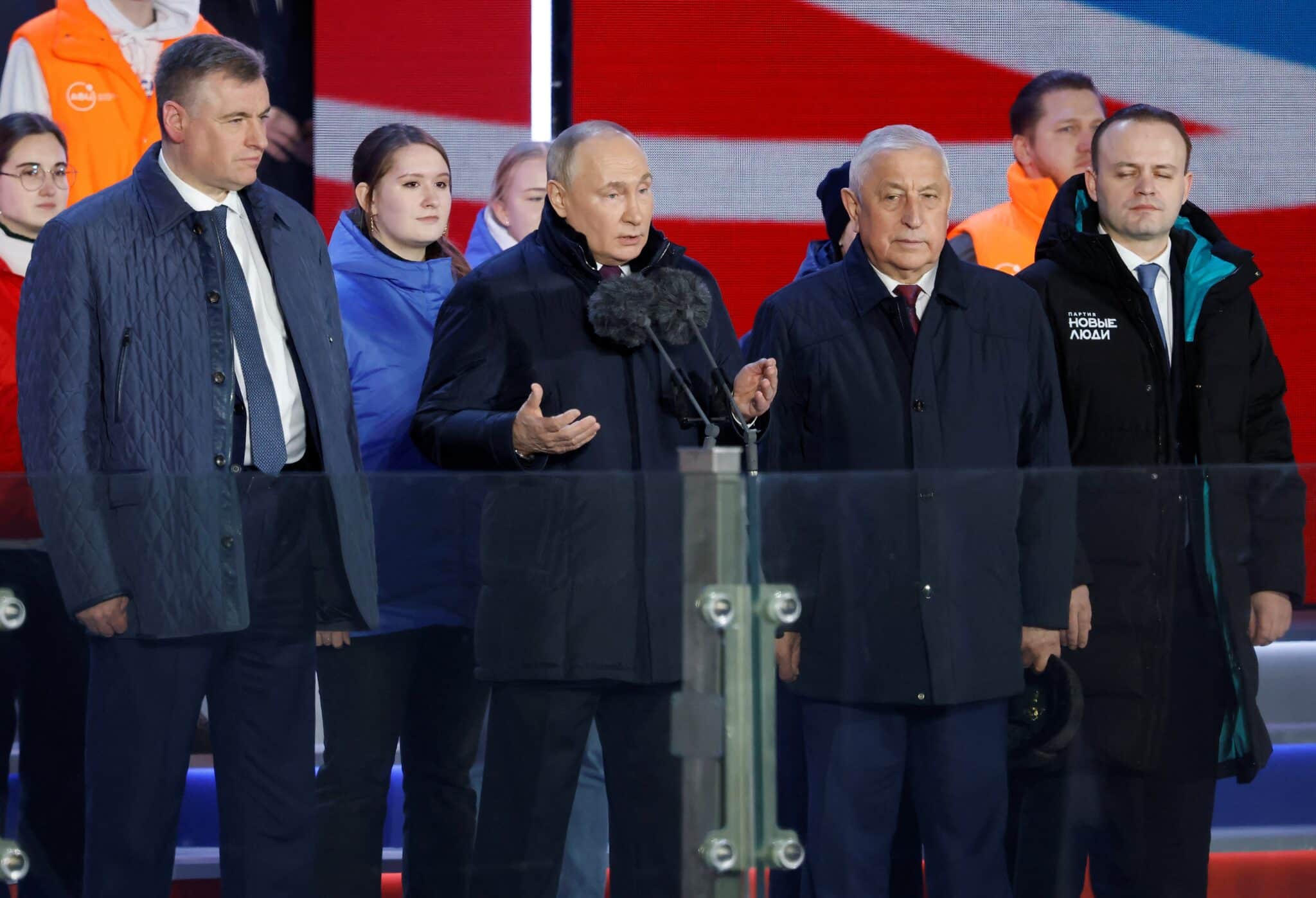
VATICAN CITY (CNS) — Pope Francis has not accepted an invitation to travel to Moscow in June to meet with Vladimir Putin, the director of the Holy See press office said.
A report on the website of Intelligence Online, a French journal, “does not correspond to the truth,” Matteo Bruni told reporters March 20.
A story on the website March 19 had said Ivan Soltanovsky, the Russian ambassador to the Holy See, invited the pope to meet Vladimir Putin in Moscow in June, “an invitation that the pope accepted,” Intelligence Online had reported.
The journal said the pope, who repeatedly has been invited to visit Ukraine, would travel to Kyiv immediately after visiting Moscow.
After Russia launched its large-scale invasion of Ukraine in February 2022, Pope Francis said he would be willing to accept the invitation of the Ukrainian government to visit, but only if he could visit Moscow as well.
Earlier the Russian news agency RIA Novosti had reported that Pope Francis had congratulated Putin on his victory in the presidential election March 17, an election Western observers described as rigged. Bruni had told Catholic News Service March 18 that the report was not true.
The Vatican has repeatedly offered to act as a mediator between Ukraine and Russia, and last year Pope Francis sent his peace envoy for Ukraine, Italian Cardinal Matteo Zuppi of Bologna, to Kyiv, Moscow, Washington and Beijing to meet with foreign leaders and advance peace talks on Ukraine.
In early March, however, the pope caused consternation when segments of an interview were released in which he said Russia and Ukraine need to have the “courage of the white flag” to halt the fighting and negotiate.
The phrase “white flag” usually refers to surrendering, and Ukrainian leaders were outraged.
Pope Francis was not asking Ukraine to consider surrendering to Russia when he called for negotiations to end the war, but he was calling for both Russia and Ukraine to cease hostilities and engage in peace talks, said Cardinal Pietro Parolin, Vatican secretary of state.
At the end of his weekly general audience March 20, praying for peace in Ukraine and in the Holy Land, Pope Francis said, “War is always a defeat.”
“We must make every effort to discuss, to negotiate to end war,” he said. “Let’s pray for this.”
By Cindy Wooden | Catholic News Service

Our Mission
We are Franciscan Media, a sponsored ministry of the Franciscan Friars of Our Lady of Guadalupe Province . We strive to inspire a loving world that embraces the Franciscan spirit of harmony, joy, and simplicity. May our resources renew your spirit as we share God’s love in the spirit of St. Francis and St. Clare.
- Phone: (513) 241-5615
- Address: 28 W. Liberty St. Cincinnati, OH 45202
Writer’s Guidelines Privacy Policy Post a Prayer Request Donor Portal Our Mission
Recent Articles
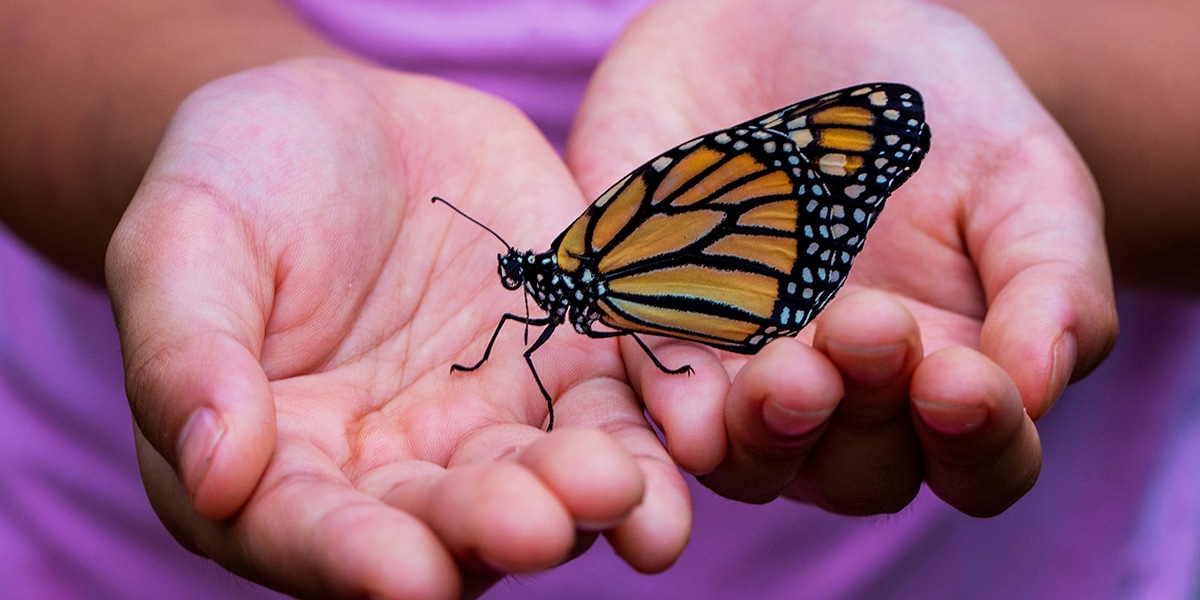
Awe and Wonder of Creation

Justice and Solidarity
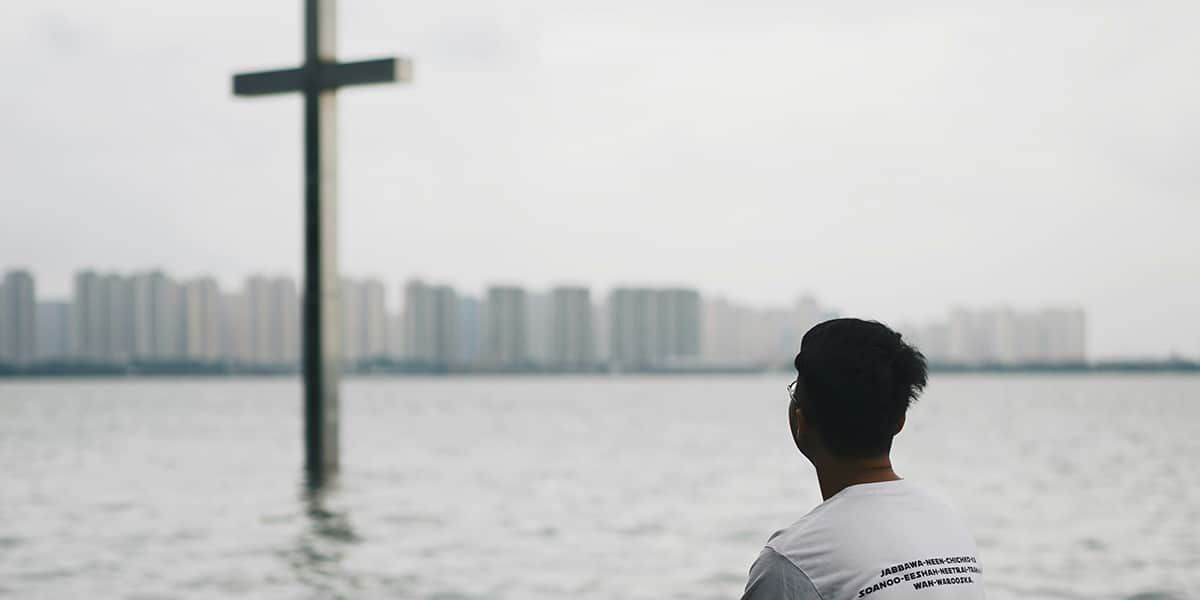
Called to the Cross

Here I Am, Lord
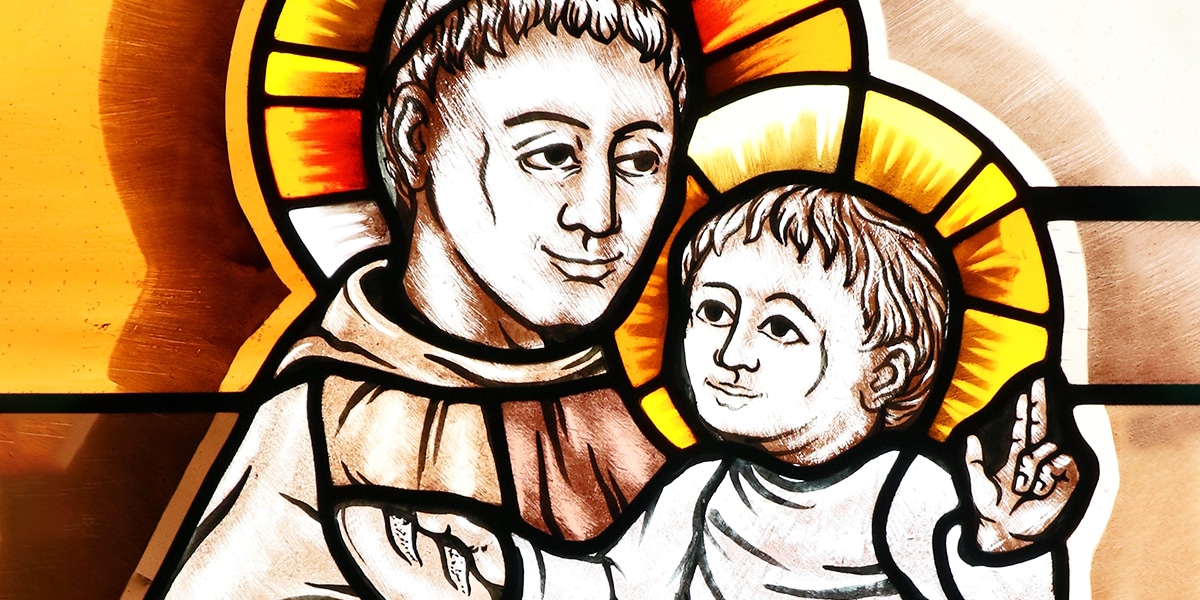
St. Anthony of Padua: Finder, Teacher, Matchmaker, Guide
Advertisement
Supported by
In Visit to Tiny Flock in Mongolia, Pope Has an Eye on Russia and China
The pontiff arrived Friday on a trip that the Vatican said was meant to encourage the fewer than 1,500 Catholics there. But it also brings him close to two great powers that have vexed him.
- Share full article

By Jason Horowitz
Reporting from Ulaanbaatar, Mongolia
Pope Francis has long expressed a desire to visit Russia and China in hopes of healing the church’s historical rifts and ensuring the faith’s future in the populous East. On Friday, he came very close, landing in Mongolia, a country sandwiched between the two geopolitical giants, with a minuscule Catholic population that no pope has visited before.
“The inhabitants are few,” Francis acknowledged in brief remarks on the plane to Mongolia. But the country, which at times seems so vast as not to end, is also a place where the “culture is great,” he said.
On Sunday, he called the trip a “much-desired visit which will be an opportunity to embrace a church that is small in number, but vibrant in faith and great in charity.”
But many observers in and out of the church are wondering why Francis, who is 86 and often uses a wheelchair, traveled more than 5,000 miles to visit fewer than 1,500 Catholics, in a geographically vast nation where a good chunk of the largely nomadic population of 3.3 million knows very little about him, according to a pollster.
The answer, the Vatican has said, is that Mongolia, like other far-flung places Francis has visited, speaks to his priorities for the direction he wants to take the church, and his mission to improve cooperation and dialogue among the world’s religions. Francis also has ambitions to be heard on the secular stage, and by two world powers with which he has rocky relations, at a time of great upheaval.
The Vatican says the principal reason for the visit is to encourage the tiny community of Catholics, in keeping with his emphasis on drawing attention to the church’s peripheries.
More than 40 percent of Mongolians say they have no religious identity, according to census data . Of those who say they are religious, some 87 percent say they are Buddhist. About 5 percent are Muslim, 4 percent identify as adherents of shamanism and barely 2 percent are Christians.
Last year, Francis stunned many in the Vatican by elevating an Italian missionary in the capital city of Ulaanbaatar, who has been in Mongolia for decades, to the exalted status of cardinal, and gave him a coveted spot in the Vatican’s powerful office for evangelization.
“It has been a gradual and slow growth,” the cardinal, Giorgio Marengo, 49, said, describing his experience in Mongolia. It has not, he said, been “very sudden or significant in a way in terms of numbers, but a constant little growth.”
But the numbers are still exceptionally small, and as a result, there appears to be less than the usual buzz over a papal visit.
“Nobody actually is talking about the pope,” said Sumati Luvsandendev, a leading Mongolian political analyst and opinion pollster.
Beyond meeting members of the small Mongolian church, Francis will also use a gathering with representatives from Mongolia’s mix of faiths to further his mission of interreligious tolerance.
Ulaanbaatar, which is heavily polluted and increasingly crowded because of internal displacement, will provide an opportunity for him to touch on the themes of migration and the environment that are core to his pontificate.
Mongolia’s suffering from climate change, exploitation by mining interests and even overproduction of cashmere by pasture-decimating goats will allow him to amplify his cry to protect the environment, in a nation where eagles and horses are core to the national identity, and where livestock outnumber people by about 20 to one.

The four-day visit to what Francis called the “heart of Asia” began at Chinggis Khaan International Airport, where he received a welcome gift of dried yogurt instead of the customary gift horse — sometimes symbolic, sometimes real — given to visiting dignitaries. He was met on the tarmac by soldiers in red and blue uniforms and gold helmets, then wheeled into a Hyundai flying a Vatican flag, which took him to the residence of the head of the local church, where he will stay.
The pope’s visit will include meetings with Prime Minister Oyun-Erdene Luvsannamsrai and other authorities, Catholic charity groups and local clergy. But it also brings Francis close to the two neighboring leaders, President Vladimir V. Putin in Russia and President Xi Jinping in China, who have vexed his ambitions in and out of the church.
In 2018, Francis, seeking more access to China, made a largely secretive deal with the government to ensure more collaboration over the nomination of bishops. The pope typically appoints bishops, but the Communist government has long insisted on naming its own to more closely control the state-run church there.
Conservatives and advocates for human rights protested the Vatican’s decision to acknowledge some of those bishops and, they say, legitimize the practice — though the deal, designed to narrow the divide between the state- and Rome-led churches, recognized Francis as the leader of the church and gave him an important role in the process.
Some accused the pontiff of selling out religious liberty and China’s long-suffering underground church, which does not recognize the state-appointed bishops. But the Vatican argued that the deal was worth it given the longer-term goal of more dialogue and a greater church presence in China.
Since then, China has only strained relations by continuing to crack down on religious minorities, and it has consistently violated the spirit of the agreement by unilaterally appointing bishops. It is unclear whether Chinese Catholics will cross the border with Mongolia to hear or even meet the pope during the visit.
Some experts suggest that the Vatican hopes that Mongolia, because of its location and close economic and political ties to China, could act as an intermediary to improve relations. In his flight to Mongolia, Francis passed over Chinese airspace, allowing him to send a customary telegram of greetings to Mr. Xi, a rare direct communication between them.
Mongolia’s neighbor to the north, Russia, has proved even more nettlesome. At the beginning of his pontificate, Francis pursued steps to reconcile a more than 1,000-year schism between the Eastern and Western church by meeting in Cuba with Patriarch Kirill I, the leader of the Moscow-based Russian Orthodox Church.
But Russia’s war in Ukraine has blown up that effort, and vexed Francis, who has chastised Kirill as being the “altar boy” of Mr. Putin.
Francis’ lingering ambitions to keep the dream of reconciliation alive, experts say, has led to some awkward moments of softening and kind words for Russia. The latest came in recent days, when in comments made by video to Catholic youth in St. Petersburg, Francis praised 18th century Russian rulers and the Great Russia they helped create — an empire that Mr. Putin has invoked in framing his invasion of Ukraine.
“Never forget the legacy,” Francis said. “You are the heirs of Great Russia: Great Russia of saints, rulers, Great Russia of Peter I, Catherine II, that empire — great, enlightened, of great culture and great humanity.”
The Vatican did not publish those remarks, which were off the cuff, but they were heard in a clip circulated by religious agencies and Russian news media. They prompted criticism from Ukrainians, who have long been frustrated by the pope’s efforts to maintain a sort of neutrality in the hopes of playing an eventual role in a peace deal, an ambition geopolitical experts say is a fantasy.
Pope Francis did not intend to “glorify imperialistic logic,” the Vatican said on Tuesday.
Many Mongolians still feel culturally close to Russia after 70 years of Soviet-influenced communist rule that suppressed religion. The country opened up after the fall of Communism, established relations with the Vatican in 1992 and enshrined religious freedom in its Constitution.
But while Mongolia’s neighbors perhaps increased the resonance of the pope’s trip, the Vatican on Tuesday made it clear, when asked about possible meetings with the Chinese or Russians while there, that the focus was on Mongolia.
“The trip is Mongolia,” said Matteo Bruni, the pope’s spokesman. “Pope Francis will go principally to talk to them.”
But the world’s powers were clearly on his mind. When a reporter on the flight who showed him a Ukrainian soldier’s canteen, apparently perforated with shrapnel, asked if diplomacy was hard, Francis said, “Yes, you can’t imagine how hard it is,” and added, “And at times it takes a sense of humor.”
A photo caption with an earlier version of this article referred incorrectly to nuns praying in a church. The nuns were attending Mass, not saying Mass.
How we handle corrections
Jason Horowitz is the Rome bureau chief, covering Italy, the Vatican, Greece and other parts of Southern Europe. He previously covered the 2016 presidential campaign, the Obama administration and Congress, with an emphasis on political profiles and features. More about Jason Horowitz
Pope Francis ready to visit Ukraine and Russia
German Press Agency
ROME – Pope Francis says he is willing to travel to Ukraine, which is under attack from Russia, but only on the condition that he can also travel to Moscow.
“I will go to both places or to neither,” the head of the Catholic Church said in an interview with Saturday’s edition of the Argentinian newspaper La Nacion.
The war in Ukraine could only be ended through dialogue and concrete peace initiatives, he said. The pontiff, 86, was already considering a trip to the countries last summer. At that time he also said he would like to visit Kyiv and Moscow.
The Vatican has long sought to play a mediating role in the conflict – in this context, he spoke to La Nacion of the “desire to serve peace.” In the interview, Francis reported how he had asked Russian leaders whether he could travel to Moscow on the second day after the full-scale Russian invasion of Ukraine. Russian Foreign Minister Sergei Lavrov, he said, had declined with thanks at the time.
The pontiff reiterated his dismay at the war: “The war hurts me, that’s what I want to say. The war hurts me.”
In his public appearances and audiences, he regularly speaks of the suffering of Ukrainians. For diplomatic reasons, he does not mention Russia by name.
I didn’t think I would ever need WA Cares: I was wrong
I never thought I would need someone to care for me.

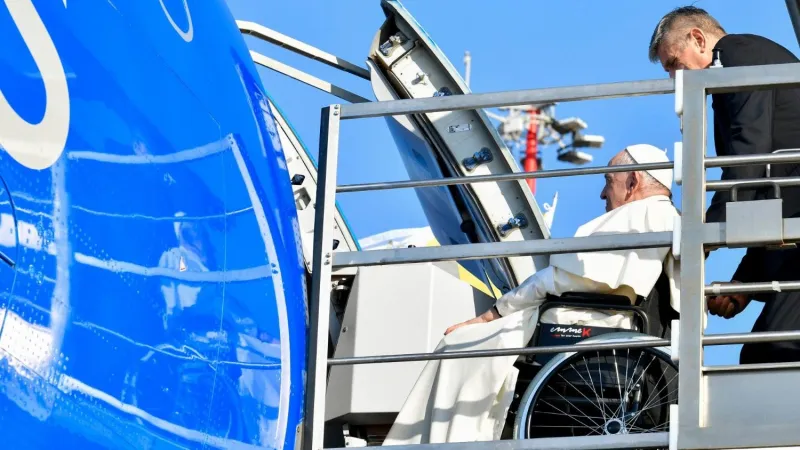
As we enter a year filled with anticipation, a prevalent question surfaces: Will Pope Francis make a return to Argentina after a decade of his pontificate? This query resonates with many, as Pope Francis has often voiced his wish to revisit his homeland - a trip that would be his first as the pontiff. Despite this desire, health issues have been a concern, notably his influenza, which, while unrelated to his overall health that necessitated two surgeries in the past three years, led to the cancellation of his intended trip to Dubai for COP28.
In an interview with Televisa, Pope Francis has detailed plans for three potential trips in the upcoming year: to Argentina, Belgium for the 600th anniversary of the University of Louvain, and to Polynesia. Of these, the visit to Belgium is confirmed.
Polynesia emerges as an unexpected destination , having never been mentioned by the Pope previously, in contrast to his expressed interest in visiting Papua New Guinea. A trip incorporating Thailand was also under consideration during the COVID-19 pandemic.
Belgium, on the other hand, is a definitive stop . With preliminary announcements emanating from Brussels, the visit is slated for September, implying that a journey to Polynesia would likely be scheduled for the summer.
Meanwhile, Argentina might feature in the Pope's itinerary in the early months of the year . A notable occasion is the rescheduled canonization of Mamma Antula, Argentina's Spiritual Mother, now set for February 11 instead of May. While canonizations are typically held in Rome and presided over by the Pope, there is a possibility that Pope Francis may exceptionally conduct this ceremony in Buenos Aires. February or March are being considered as probable for this potential visit to Argentina.
The earlier speculation of a trip to Kosovo appears to have been dismissed. Kosovo, a state not recognized by the Holy See, was mentioned by the Pope in an interview with Vida Nueva prior to his journey to Mongolia.
An additional, highly symbolic visit has been proposed: Pope Francis has received an invitation to visit Vietnam, extended by the country's Government Committee for Religious Affairs . The invitation, sent to Santa Marta, encourages the Pope to witness firsthand the socio-economic progress and religious life in this Southeast Asian nation.
As per the committee, Vietnam's President Thuong has conveyed his and the country's seven million Catholics' eagerness to welcome the Pope. He noted the profound impression left by his encounters with Pope Francis and Cardinal Pietro Parolin during his Vatican visit in July.
Significantly, on December 23, the Holy See appointed its first resident representative in Hanoi, marking a crucial step towards establishing full diplomatic relations.
Nonetheless, the number of Pope Francis's trips is expected to be no more than three.
This article was originally published on ACI Stampa.
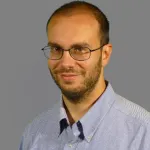
Andrea Gagliarducci is an Italian journalist for Catholic News Agency and Vatican analyst for ACI Stampa. He is a contributor to the National Catholic Register.
STAY INFORMED and be inspired with breaking news from the Vatican and stories that help you grow in faith.
I want to receive news about the Vatican and information from EWTN about their work and how to best support them.
I agree that EWTN will keep me informed about news, faith stories and how to best support their work. You will never receive e-mails from us that you do not want to receive. You can unsubscribe any time. For more information on how to unsubscribe, our privacy practices, and how we are committed to protecting and respecting your privacy, please review our Privacy Policy.
We use Mailchimp as our marketing platform. By clicking below to subscribe, you acknowledge that your information will be transferred to Mailchimp for processing. Learn more about Mailchimp's privacy practices here.

Home » If the Pope Goes to Moscow – Preparing for Garabandal
If the Pope Goes to Moscow – Preparing for Garabandal
- By Steve Smith
- 14 March AD 2023
- 30 Comments

Whether or not you believe that Tribulations and a Warning for mankind, as foretold at Garabandal and in other private revelations, are imminent, it can’t hurt to be prepared for such events.
This article relates to “end of the times” warnings given by our Blessed Mother through messages to various individuals, particularly during apparitions at Garabandal, Spain; Quito, Ecuador; Akita, Japan; Kibeho, Rwanda; La Salette, France; Heede, Germany; and Fatima, Portugal.
Note, however, that these “end of the times” messages and events are not specifically related to the “end of time” and second coming of Christ. They are, rather, events that mark the entry into what might be called a new spiritual age.
I am not arguing the validity or fine points of these apparitions and messages. The purpose of this article is rather to address how we should prepare ourselves, and be prepared to help others, assuming the purported events come to pass in our time. A key event foretold at Garabandal to precede the “end of the times” is the Pope visiting Moscow.
Proclaiming the Supernatural to a World of Skeptics
I recall seeing “Indiana Jones and the Raiders of the Lost Ark” as a teenager and thinking at the end, “it just doesn’t ring true.” At the end of the movie, our hero, Indiana, experiences the glory and power of God – the shekinah fire of God, and the destroying Angel. Indy should have come away completely transformed; a card-carrying orthodox Catholic. But instead, he remains the skeptical, secular-humanist, man of science (the old lie that science and Catholicism mix like champagne and motor oil).
I suppose the writers and producers got together and decided “Indiana Jones and the Quest for the Latin Mass” wouldn’t make for a blockbuster sequel.
Whatever cynical reasons they might have had for maintaining Indy’s hard-headed materialism, there is a greater truth underlying it. We have in our nature a stunning capacity to brush off the greatness of God no matter how miraculously it manifests itself. Take for example Pharaoh, who witnessed the power of God in the ten plagues and yet his heart remained hardened. In Jesus’ time, consider all those who witnessed His miracles and yet walked away during the bread of life discourse, because His teaching was too difficult.
We encounter this principle in our time. The miracles of Fatima, Guadalupe, Las Lajas , and so many others are written off or simply ignored by a faithless world.
This innate skepticism and imperviousness to the supernatural is an important backdrop to preparing for “end of the times” events.
The “End of the Times” Events
There is some overlap and differences in how these “end of the times” events play out in different Marian apparitions and other private revelations. In this article I am using the vocabulary and sequence of events as given by our Blessed Mother to four school girls (Mari Loli, Mari Cruz, Jacinta and Conchita) at Garabandal, Spain, from 1961 to 1965.
There are many descriptions of these events, such as here , here and here . In brief, the Garabandal sequence of events are:
- The Tribulation – great trials and societal unrest (caused especially by the spread of communism) leading up to the Warning. This may be precipitated by the Pope traveling to Moscow, with unrest breaking out in Europe and spreading through the world.
- The Warning (also called the “Illumination of Conscience”) – a mini-judgement experienced by all. It will last only a short time, but will seem long because we will see all of our life, good and bad, as God sees it.
- The Great Miracle and Sign – a miracle visible to all in vicinity of Garabandal to confirm the authenticity of the apparitions and Warning, with an accompanying permanent miraculous physical sign left “in the Pines” of Garabandal.
- The Chastisement – if the world doesn’t repent sufficiently, there will be a chastisement (some speculate this might include the Three Days of Darkness).
Based on other apparitions, these events might then lead to an era of peace; a time of worldwide conversion and harmony.
Our Preparation
Our preparation for the illumination of conscience is simple – we follow the messages from Mary, which are nothing more or less than the perennial teachings of the Church. Make a good confession at least once a month. Receive the Eucharist at least once a week, but as often during the week as we are able. And make acts of penance and reparation. Pray the Rosary daily.
I suggest that implicit in the list are daily Christian meditation , doing our best to grow in virtue and conquer vice, and seriously learning the precepts of our faith. We will need all of this to help others, as described below.
Some have speculated that the Chastisement might also include the “three days of darkness,” which is known from other private revelations, particularly those of Blessed Maria Taigi and Marie-Julie Jahenny. This is a three-day period of complete darkness , no lights or other equipment will work. The only source of light will be from pure wax candles that have been blessed by a priest. Going outside, or even looking out a window, during this three-day period, could be fatal.
Helping Others
Here we return to the Indiana Jones example.
It was revealed to the visionaries at Garabandal that soon after the Warning the forces of darkness would mount campaigns to convince the world that the miraculous illumination of conscience, experienced simultaneously by the entire world, had nothing to do with God and could be explained away by science. Perhaps they will try to write it off as a group hallucination caused by a solar flare. Richard Dawkins, and others, are already laying the groundwork .
Whatever they come up with, they will have a large audience willing to latch on to any explanation that does away with God. All the while Satan and his minions will be fanning the flames their skepticism.
And even among the multitudes who are open to believing the truth of what they experienced, many will be ill-equipped for what to do in response to it.
Below is a draft script you could use for an email or conversation, editing as needed, of course (thank you to Kelly from our Rosary group for the initial inspiration for this). You’ll see the script ends with an invitation to meet, preferably in person, so you can discuss their next steps.
From that point you would invite them to take the next steps into the faith, depending on where they are in their spiritual journey. If they are completely un-Churched, you would be helping them start from scratch. If they are practicing Christians, you would help them come into the fullness of the Catholic faith. And if they are lapsed Catholics, you would help them return to the Sacraments. And so on.
A Sample Script
Dear _______,
First, be not afraid!
This is a brief note to emphasize that what we all experienced yesterday (which has been called “the warning”) was absolutely real, and it was exactly what it seemed to be – the God of the Bible (the Father, Son and Holy Spirit) spoke to each of us and gave us a wake-up call.
I want you to know that this was not a surprise to many of us, because it had been foretold by messages from the Blessed Virgin Mary.
That may sound extraordinary, but after yesterday I think we can all agree we are in extraordinary times.
To help you believe the validity of all of this, here are a few remarkable facts from just one of the Blessed Mother’s visitations – in this case to four young girls in Garabandal, Spain in the 1960’s:
- One of the girls was told that this would all come to pass after the reign of 3 more popes. But then she clarified (paraphrasing) “it’s actually four Popes but one will reign for such a short time it won’t count.” She essentially predicted the coming of Pope John Paul 1, in 1978, who reigned for just 33 days.
- On another occasion, the same girl was told it would happen after an “important synod.” Bear in mind these were simple girls living in rural Spain. They had no way of knowing what a “synod” was. A “synod” is a formal term for a specific type of Church conference, and they are relatively rare events. As it turns out, the Catholic Church just held and unusually long and significant synod.
- In a 1965 interview, one of the girls revealed that leading up to “the warning” the Pope will go to Moscow, and when he returns hostility or war will break out in parts of Europe. No pope had ever visited Moscow. Pope Francis’ trip was the first, and soon afterward hostilities increased and “the warning” occurred.
Those are just three examples, among many others, of how people in the Catholic Church have known this was coming.
Commit to Christ
God has also revealed that the reason for this is His desire for us “to draw closer to Him and to increase our faith.”
What needs to happen now is that we must commit ourselves to giving our lives to Christ. It is important we do this, for two reasons.
First, we must commit ourselves to conversion for the sake of our own soul. We’ve been given the gift of seeing our soul as God sees us. That is a great gift because now we’ve seen ourselves as God sees us, and we know what we need to do to become the person God created us to be.
The second reason why our conversion is so important has to do with all of humanity. Yesterday’s events have revealed to the world that there really is such a thing as good and evil. God exists. And so does Satan. What do you think the forces of evil are going to attempt to do? They’re going to try to convince people that all of this was some sort of group hallucination from a meteorological event, and that it has nothing to do with God. If they succeed and enough people don’t convert, there will be a terrible trial that God will allow to be unleashed upon the world that will bring about great suffering.
What’s Next
So, for ourselves, our loved ones, and for the good of all the world, we need to take seriously what we do next.
Just as this was all anticipated through the Catholic Church, it is within the Catholic Church that there is the full understanding of how we give our lives to Christ and live the life He desires for us.
The next steps are really very simple, but best to discuss in person. Let’s meet tomorrow and we can walk through this together…
Your friend, in Christ,

- Share on Tumblr
- Akita , Fatima , Garabandal , Heede , Kibeho , La Salette , Quito , Steve Smith , The Chastisement , The Miracle , The Tribulation , The Warning
Steve Smith
30 thoughts on “if the pope goes to moscow – preparing for garabandal”.
In his book, Weber apparently never stated that the pope will go to moscow. Only some hearsay interview.
However, the quote DOES NOT APPEAR anywhere inMr. Weber’s book, “Garabandal – Der Zeigefinger Gottes,” (1993, revised 2000). People in possession of the Second Edition of the book, who have personally gone through the entire work seven (7) times have never found the word “Moscow” appear in the book. This research was independently confirmed to be correct by a Brazilian Garabandalist and friend of Santiago Lanus.
An unanswerable question remains: Why would Mr. Weber withhold such a unique and significant piece of information from his own publication, and also with a revision of his book in 2000? This remains a puzzle, and actually quite bizarre.
Br. David Anthony: Various prophecy scriptures in the Bible give us a slightly different version of the Great Tribulation, as well as the return of Christ. I would venture to say that we are about to see the fulfillment of the 6th Trumpet War, described in Chapter 9 of Revelation.
I have been following Garabandal, and the movement that sprang up around it, since the early ’90s.
And up until roughly the day before yesterday, I had never seen any account the three popes prophecy as anything other than “three more popes, ONE OF WHICH would reign for only a short time.”
It was widely and almost universally understood among Garabandal’s followers, well into the 21st century, that John Paul II was the third and final pope, after which would come “the end of the times.”
What is the source for the claim that John Paul I’s one-month reign was separate from the three popes? It’s not inconceivable that there would be long-term confusion with regards to Garabandal–it’s happened on multiple occasions, with regard to multiple aspects–but for something of this magnitude, concrete evidence is needed.
When Conchita heard the bells ringing in the town proclaiming the death of Pope John XXIII in 1963, she said to her mother, “There will only be three more popes,” and then immediately corrected herself and said, “No, four, but his reign will be so short it won’t count.” She was, of course, referring to Pope John Paul I, whose reign lasted just 33 days. Apparently, the death of Pope Benedict XVI, on December 31, 2022, marked the “end of the times” and that we are now in the period where the final prophecies of Garabandal will be fulfilled. When Pope Francis, or his successor, return to Rome from a trip to Moscow, the Tribulation period is supposed to begin. The Warning will put an end to the Tribulation followed, within a year, by the Miracle. The Chastisement will come if mankind continues on its path of sin.
Br. David Anthony, I am asking for the SOURCE of your quote from Conchita. The earliest record I can find of anyone claiming that she said that the pope with a brief reign was a fourth pope, not one of the three, was an unsourced blog post from 2015.
Given the widespread belief through the ’80s, ’90s, and 2000s that John Paul II was the third and final pope of the prophecy, something more concrete than that is needed.
Pingback: Papal Prophecy and the “Illumination of Conscience” | New Amsterdam Perennialist
The final chastisement, sent by God’s own hand, will lead us into the New Era of Peace, otherwise known as the Parousia.
I believe the three days of darkness will come between the warning and miracle, since Jesus told St. Faustina that after the warning, there would be the cross that will light up the sky after the earth would be covered with darkness. It is my understanding, that is why Our Divine Lord will perform the Great Miracle which would last for all eternity.
A worldwide nuclear war could result in three days of darkness – “a period of abnormal cold and darkness predicted to follow a nuclear war, caused by a layer of smoke and dust in the atmosphere blocking the sun’s rays.” Revelation 9 tells us about a coming war that will kill 1/3 of mankind. That’s about 2.7 billion people today. Conventional warfare would take a considerable amount of time to produce that death toll, but nuclear attacks would do it.
Pope Francis is 86. Pope John Paul II was 84 when he died in 2005. Pope Paul VI was 80 when he died in 1978. Pope John XXIII was 81 when he died in 1963. Pope Pius XII was 82 when he died in 1958. Pope Pius XI was 81 when he died in 1939. Pope Benedict XVI was 95 when he died last year. I do not expect pope Francis to live past 90. Therefore, when we talk about the pope going to Moscow which pope are we referring to? And who is he going to meet in Moscow? Putin’s days are numbered, and he certainly knows it.
There is a possibility that we may have another new pope, very different from Pope Francis in his clarity on moral teaching. What the world very badly needs is a pope whose teaching is so clear and sharp and simple that even everybody understands, even if only a few accept it. This new pope may be the one who goes to Moscow to meet both the Russian religious leaders and the government leaders in an attempt to prevent “the annihilation of several nations”. While pope Francis may be interested in going to Russia, I don’t think he will unless Russia escalates the proxy war with NATO in Ukraine to a much higher level — to a level of direct confrontation with America and Europe that startles the whole world.
At the moment we are living in a era of uncertainties and worries about the near future. A handful of unwise men can send 6 billion people to their deaths in less than 24 hours. This is not a good time to be investing in stocks and shares on Wallstreet. We are on the brink of a new global understanding about the universal creator who brought each one of us into existence out of nothing. The teachings of science and technology infused into our modern culture has buried the concept of a real living God who controls nature and life, as though it were a mental aberration or a myth. Very soon we are going to have to grabble with two new understandings that are not in contradiction with each other – just the way they are taught to us are – the concept of God in his heaven as the universal creator, and the laws of science and technology that He keeps in existence. If mankind has a thousand years of peace beyond the reign of the Antichrist and beyond the book of the Apocalypse – a thousand years as one day with God – then we will be living in God’s Kingdom on earth and at the same time living in a world justice, in which every tear will be wiped away. For the former things will have passed away, into the dustbin of history – the things that we read about in our newspapers every day.
Some say the world will end in fire, Some say in ice. From what I’ve tasted of desire I hold with those who favor fire. But if it had to perish twice, I think I know enough of hate To say that for destruction ice Is also great And would suffice.
Hi Eward – thank you for your comments. The Pope of the Garabandal visionaries appears to be Pope Francis (the reasoning is explained in the links where the article says “here, here and here.” So, yes – if he’s going to Moscow, it seems like it would be in the next few years.
And thank you for that Robert Frost poem – how have I gone this long and not heard that one???
Revelation 9 tells us about a coming war that originates from the Euphrates River, an army of 200 million, and the death of 1/3 of mankind. Ezekiel 38 foretells about an alliance of nations that will attack Israel. No doubt it can, and will, happen. Bible prophecies are fulfilled.
Sorry but once again the offerings of Offenbach contradict the seers of Garabandal – there are either 3 or 4 Popes before the ‘end of the times’ or there are not.
Wittering on about what future Popes might do misses the point entirely;
What if the Pope refferred to in the message is not the current Pope but has already been to Moscow?
https://www.ncronline.org/news/russias-catholics-react-skeptically-cardinal-parolins-visit
Petrus Romanus – Peter-the-Roman – has already been to Moscow…. Youre all making assumptions that a past or present Pope will go to Moscow…
What if Our Lady meant a future – not current – Pope will go to Moscow?
So now you know the Prophecy is fullfilled and a future Pope has been revealed.
You people really are simpletons. 🙂
The pope will be refusing I. Moscow 9/4/23
Soap, Peace on earth doesn’t come until Jesus returns. Read the Bible.
Pingback: TVESDAY AFTERNOON EDITION – Big Pulpit
Our Lady’s locutions to the late Fr. Gobbi relate to the “illumination of conscience” and the new times – not the end of the world. Check out the Marian Movement of Priests for more information.
The Bible does not refer to the “end times” as the end of the world. The Book of Revelation reveals what happens before and after Jesus returns to the earth.
In a world that has been at war since the beginning of our species its a walk in the park to predict tribulations, warnings, miracles ( esp in this age) and chastisement.
Are the private revelations in keeping with those given to us in the Bible? My concern about Marian devotions/revelations is the lack of biblical foundations. I’m reminded of the words of Jesus in Luke 18:8.
The Book of Revelation gave us warnings about future events. Chapter 9 tells us about an upcoming war that will originate from the area of the Euphrates River and results in the death of 1/3 of mankind. Some refer to this as WWIII. Has it already begun?
Secondly, pertaining to the Warning, here is an interview with Conchita herself on Irish TV in 1980/81 in New York.
This link will tak you to the exact moment I am refferring to at 6:46 in – https://youtu.be/m8O3VdJDejk?t=406
here is the exchange between Conchita and host Gay Byrne –
Byrne – What… will there be a warning before you give the message or is the warning at about the same time?
Conchita – The Blessed Mother say before the Miracle is one warning is coming to the whole world…. is something gonna happen in the whole world… and eh they gonna know, everybody gonna know its coming from God.
Byrne – Yes. No matter where we are in the world?
Conchita – Yes. It dont have nothing to do with Garabandal , but is something going to happen…. like to prepare ourselves to the Miracle.
I am very confused by this last section more or less saying teh Warning has nothing to do with Garabandal…. but again, it is a direct quote from the source itself so there can be no arguing with it….
Dear Soap –
My understanding is that Conchita was differentiating between the Miracle (which is specifically located at Garabandal) and the Warning – which is worldwide. When she says “It dont have nothing to do with Garabandal” I believe she simply means that the Warning doesn’t having anything specifically to do wtih Garabandal geographically speaking (because it is everywhere) – she is not saying it doesn’t have anything to do with the Garabandal messages.
@Steve Smith March 14, AD2023 at 2:11 pm
Gotcha! That makes sense!
Thanks for the clarification.
Be interested to hear your thoughts on my other post – Pope + Moscow = Peace
What say you?
She meant the warning was NOT about the town of GARABANDAL. It’s gonna be felt world wide
There seems to be much confusion over the Pope and Moscow. Many people repeat the story but I have found no original sources or quotes pertaining to war breaking out after a Popes visit.
On the contrary, all of the sourceable quotes I have found indicate that peace and the conversion of Russia will occur as soon as the Pope visits Moscow;
"Garabandal: The Village Speaks" by Ramón Pérez: The book includes an interview with Conchita González, in which she describes the message she received about the Pope's visit to Moscow. The quote is reproduced in the book as follows: *"The Virgin said that there will be a council and after that, Russia will be converted. She also said that the Pope will go to Russia and will place his foot in Moscow. Then, Russia will be converted."* "The Apparitions of Garabandal" by F. Sanchez-Ventura Y Pascual: The book quotes Conchita's message about the Pope's visit to Moscow and provides some commentary on its significance. The quote appears in the book as follows: *"She [the Virgin Mary] told me that there would be a council in the Church and that after this council Russia would be converted. And when would this happen? When the Pope goes to Moscow and places his foot on the land where so much blood has been shed, faith will be restored."* "Garabandal: A Message of Hope" by Edward Serrano: The book includes a section on the message about the Pope's visit to Moscow, and reproduces the quote in a slightly different form. The quote in the book reads: *"The Virgin told me that there will be a council and after this council, Russia will be converted. And when will this happen? When the Pope goes to Moscow and places his foot on the land where so much blood has been shed, faith will be restored."*
No mention of a war breaking out.
Perhaps Pope Francis knows and understands the true message – that his visit will bring peace – and that is why he is keen to go?
Thank you for those illuminating references.
Elsewhere Conchita has stated she was told by our Holy Mother that there will not be a World War III.
Based on numerous apparitions and private revelation, if the Warning comes to pass, and enough people convert, there will be a time of a certain degree of peace.
But what one thing we know for sure, there will never be “heaven on earth” until the Christ’s Second Coming brings the true end of time and new heavens and new earth.
Why are we NOT surprised that a Socialist Pope goes to a Socialist nation, who government has murdered millions of Christians, which still believes in Karl Marx wrote that religion is “the opiate of the masses”. Also, since we are baptized into Jesus the Christ we are always prepared for His Second Advent. Thus we pray: “Come Lord Jesus! Come quickly! Amen”
Thank you for the comments, T.W.
You’re correct – Pope Francis is certainly the right Pope at the right time. Not only is God’s timing perfect, His HR department is as well.
I do take issue with your statement that we are “always prepared” by virtue of our baptism. The sanctifying grace of baptism is indispensable, but we must continually “make our election permanent” and “work out our salvation” particularly through the Sacraments of the Eucharist and Reconciliation.
It’s just part of our human nature that we can lose our edge from time to time. If the Pope goes to Moscow it will be a wake up call to do a self-assessment and make sure we’re remaining vigilant.
Pingback: If The Pope Goes To Moscow – Prepare For Garabandal
Leave a Comment Cancel Reply
Your email address will not be published. Required fields are marked *
Notify me of follow-up comments by email.
Notify me of new posts by email.
This site uses Akismet to reduce spam. Learn how your comment data is processed .
Pope visits Venice to speak to the artists and inmates behind the Biennale’s must-see prison show
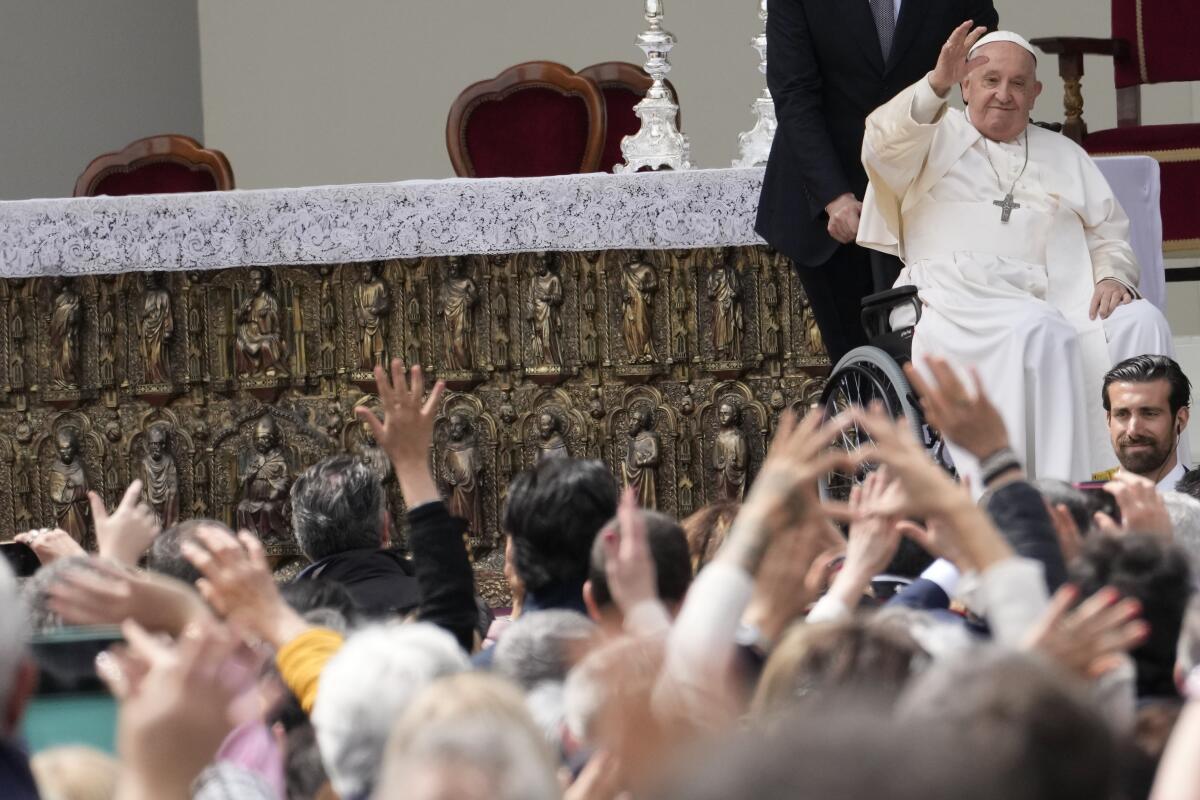
- Show more sharing options
- Copy Link URL Copied!
Venice has always been a place of contrasts, of breathtaking beauty and devastating fragility, where history, religion, art and nature have collided over the centuries to produce an otherworldly gem of a city. But even for a place that prides itself on its culture of unusual encounters, Pope Francis’ visit Sunday stood out.
Francis traveled to the lagoon city to visit the Holy See’s pavilion at the Biennale contemporary art show and meet with the people who created it. But because the Vatican decided to mount its exhibit in Venice’s women’s prison, and invited inmates to collaborate with the artists , the whole project assumed a far more complex meaning, touching on Francis’ belief in the power of art to uplift and unite, and of the need to give hope and solidarity to society’s most marginalized.
Francis hit on both messages during his visit, which began in the courtyard of the Giudecca prison where he met with the women inmates one by one. As some of them wept, Francis urged them to use their time in prison as a chance for “moral and material rebirth.”
“Paradoxically, a stay in prison can mark the beginning of something new, through the rediscovery of the unsuspected beauty in us and in others, as symbolized by the artistic event you are hosting and the project to which you actively contribute,” Francis said.
Francis then met with Biennale artists in the prison chapel, decorated with an installation by Brazilian visual artist Sonia Gomes of objects dangling from the ceiling, meant to draw the viewer’s gaze upward. He urged the artists to embrace the Biennale’s theme this year “Strangers Everywhere,” to show solidarity with all those on the margins.
The Vatican exhibit has turned the Giudecca prison, a former convent for reformed prostitutes, into one of the must-see attractions of this year’s Biennale, even though to see it visitors must reserve in advance and go through a security check. It has become an unusual art world darling that greets visitors at the entrance with Maurizio Cattelan’s wall mural of two giant filthy feet , a work that recalls Caravaggio’s dirty feet or the feet that Francis washes each year in a Holy Thursday ritual that he routinely performs on prisoners.
The exhibit also includes a short film starring the inmates and Zoe Saldana, and prints in the prison coffee shop by onetime Catholic nun and American social activist Corita Kent.
Francis’ dizzying morning visit, which ended with Mass in St. Mark’s Square, represented an increasingly rare outing for the 87-year-old pontiff, who has been hobbled by health and mobility problems that have ruled out any foreign trips so far this year.
And Venice, with its 121 islands and 436 bridges, isn’t an easy place to negotiate. But Francis pulled it off, arriving by helicopter from Rome, crossing the Giudecca Canal in a water taxi and then arriving in St. Mark’s Square in a mini popemobile that traversed the Grand Canal via a pontoon bridge erected for the occasion.
During an encounter with young people at the iconic Santa Maria della Salute basilica, Francis acknowledged the miracle that is Venice, admiring its “enchanting beaty” and tradition as a place of East-West encounter, but warning that it is increasingly vulnerable to climate change and depopulation.
“Venice is at one with the waters upon which it sits,” Francis said. “Without the care and safeguarding of this natural environment, it might even cease to exist.”
Venice, sinking under rising sea levels and weighed down by the impact of overtourism, is in the opening days of an experiment to try to limit the sort of day trips that Francis undertook Sunday.
Venetian authorities last week launched a pilot program to charge day-trippers 5 euros ($5.35) apiece on peak travel days. The aim is to encourage them to stay longer or come at off-peak times, to cut down on crowds and make the city more livable for its dwindling number of residents.
For Venice’s Catholic patriarch, Archbishop Francesco Moraglia, the new tax program is a worthwhile experiment, a potential necessary evil to try to preserve Venice as a livable city for visitors and residents alike.
Moraglia said Francis’ visit — the first by a pope to the Biennale — was a welcome boost, especially for the women of the Giudecca prison who participated in the exhibit as tour guides and as protagonists in some of the artworks.
He acknowledged that Venice over the centuries has had a long, complicated, love-hate relationship with the papacy, despite its central importance to Christianity.
The relics of St. Mark — the top aide to St. Peter, the first pope — are held here in the basilica, which is one of the most important and spectacular in all of Christendom. Several popes have hailed from Venice — in the past century alone three pontiffs were elected after being Venice patriarchs. And Venice hosted the last conclave held outside the Vatican: the 1799-1800 vote that elected Pope Paul VII.
But for centuries before that, relations between the independent Venetian Republic and the Papal States were anything but cordial as the two sides dueled over control of the church. Popes in Rome issued interdicts against Venice that essentially excommunicated the entire territory. Venice flexed its muscles back by expelling entire religious orders, including Francis’ own Jesuits.
“It’s a history of contrasts because they were two competitors for so many centuries,” said Giovanni Maria Vian, a church historian and retired editor of the Vatican newspaper L’Osservatore Romano whose family hails from Venice. “The papacy wanted to control everything, and Venice jealously guarded its independence.”
Moraglia said that troubled history is long past and that Venice was welcoming Francis with open arms and gratitude, in keeping with its history as a bridge between cultures.
“The history of Venice, the DNA of Venice — beyond the language of beauty and culture that unifies — there’s this historic character that says that Venice has always been a place of encounter,” he said.
Francis said as much as he closed out Mass in St. Mark’s before an estimated 10,500 people.
“Venice, which has always been a place of encounter and cultural exchange, is called to be a sign of beauty available to all,” Francis said. “Starting with the least, a sign of fraternity and care for our common home.”
Winfield reported from Rome. Associated Press writer Colleen Barry contributed.
Get U-T Arts & Culture on Thursdays
A San Diego insider’s look at what talented artists are bringing to the stage, screen, galleries and more.
You may occasionally receive promotional content from the San Diego Union-Tribune.
More in this section
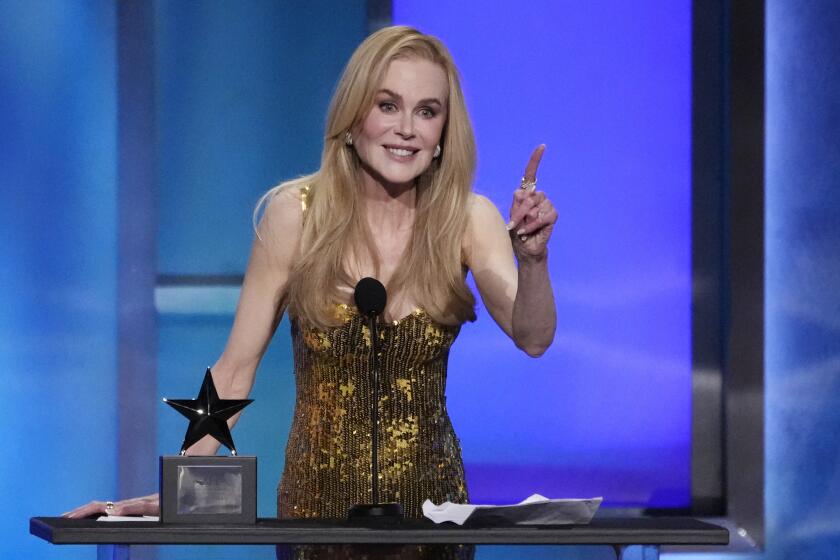
National Entertainment
Nicole Kidman, who ‘makes movies better,’ gets AFI Life Achievement Award
Nicole Kidman won the AFI Life Achievement Award with a film career that Meryl Streep said is all about love
April 28, 2024

Chants of ‘shame on you’ greet guests at White House correspondents’ dinner shadowed by war in Gaza
A glitzy election-year roast by President Joe Biden drew journalists, celebrities and politicians — but also hundreds of protesters against the war in Gaza

Harvey Weinstein due back in court, while a key witness weighs whether to testify at a retrial
Harvey Weinstein will appear in a New York City court next week, the first step in potentially retrying the film mogul after his 2020 rape conviction was overturned
April 26, 2024
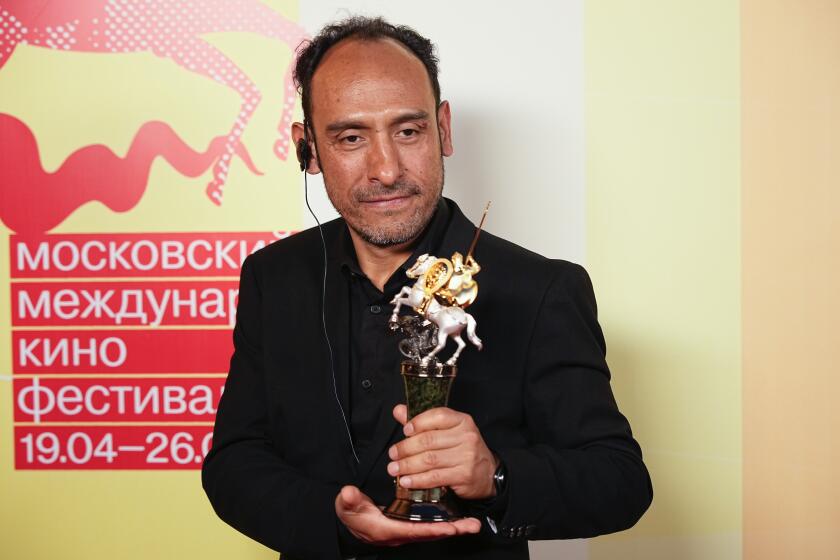
Mexican film wins top prize at Moscow International Film Festival while major studios boycott Russia
A Mexican film has won the top prize at the Moscow International Film Festival which took place as major Western studios boycott the Russian market and as Russia’s war in Ukraine grinds into its third year
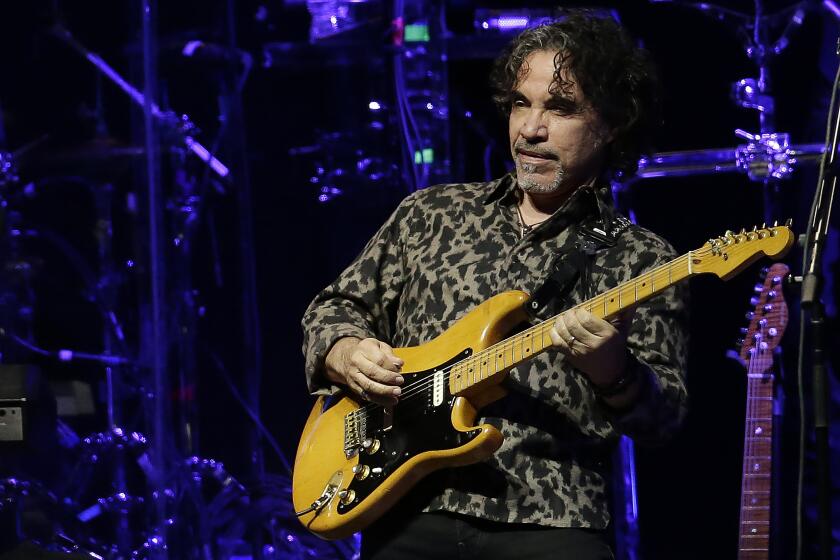
John Oates’ new album is called ‘Reunion.’ But don’t think Hall & Oates are getting back together
For music fans, John Oates is most recognizable as one-half of the Grammy-nominated Hall & Oates, the multi-platinum soul-pop duo behind hits like ″Private Eyes” and “Maneater.”
Top 20 Global Concert Tours from Pollstar
AP Global Top 20 Pollstar Week of 04/29/24
US intelligence believes Putin probably didn't order Navalny to be killed, Wall Street Journal reports
- Medium Text
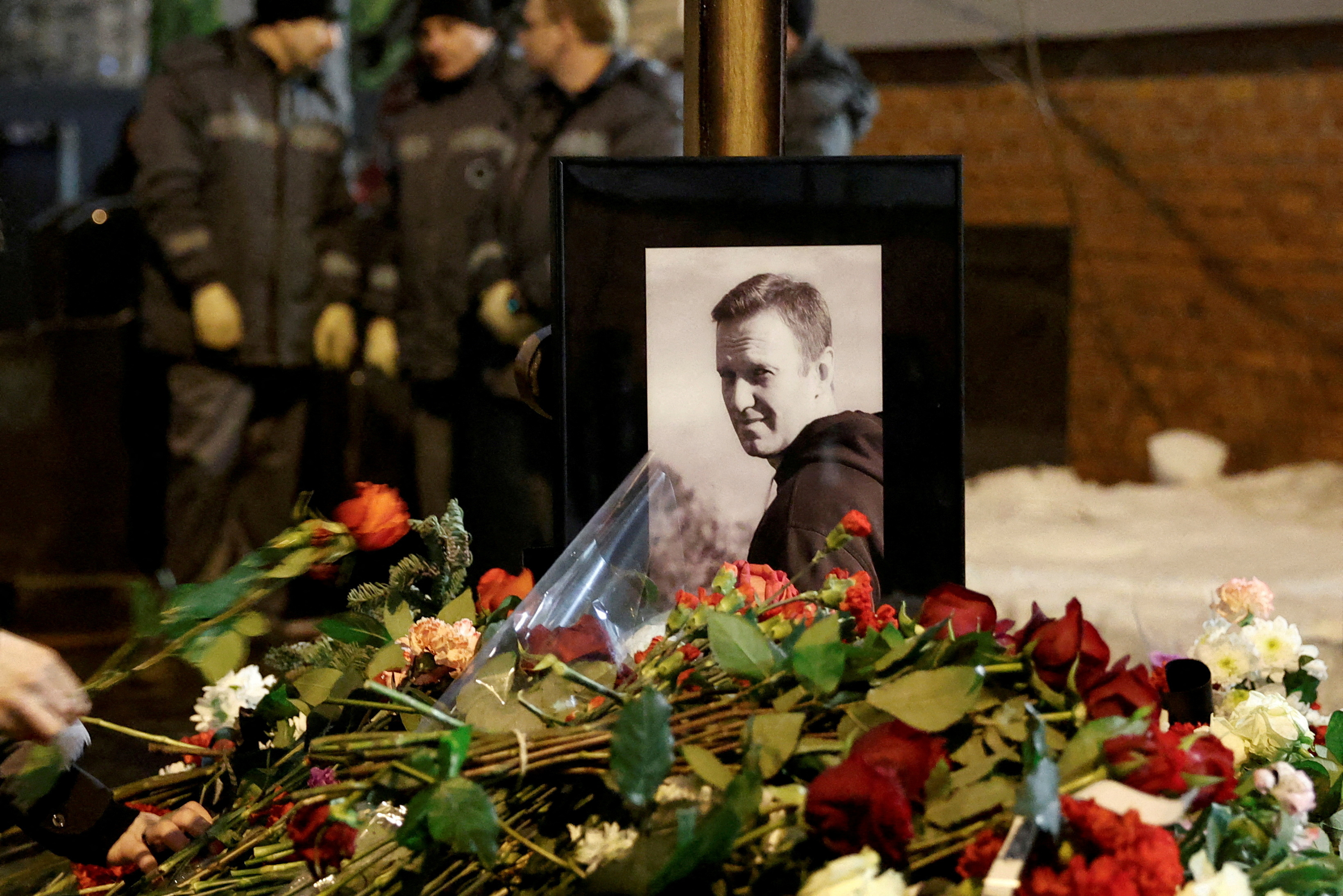
Sign up here.
Reporting by Andrew Osborn Editing by Frances Kerry
Our Standards: The Thomson Reuters Trust Principles. New Tab , opens new tab
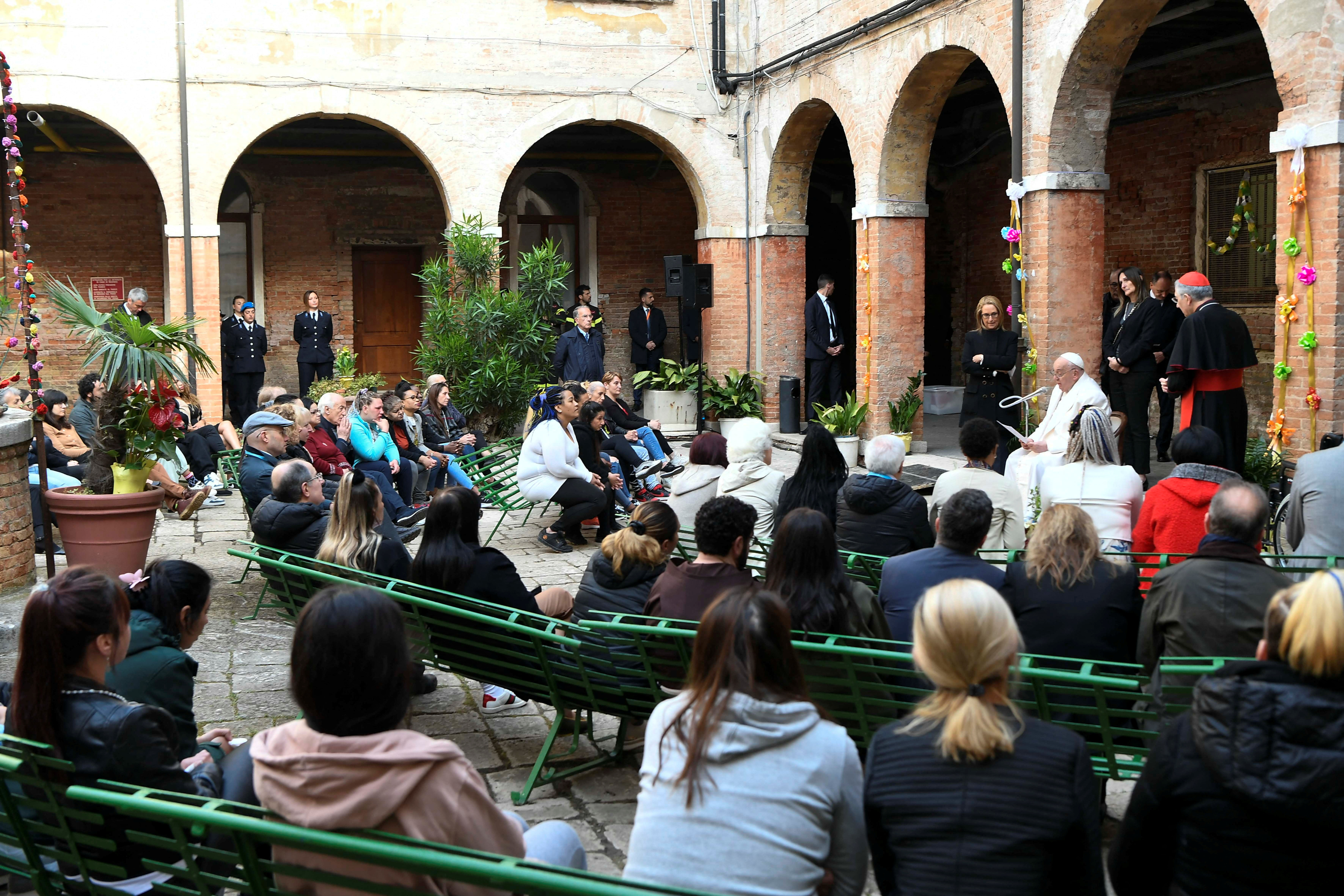
World Chevron
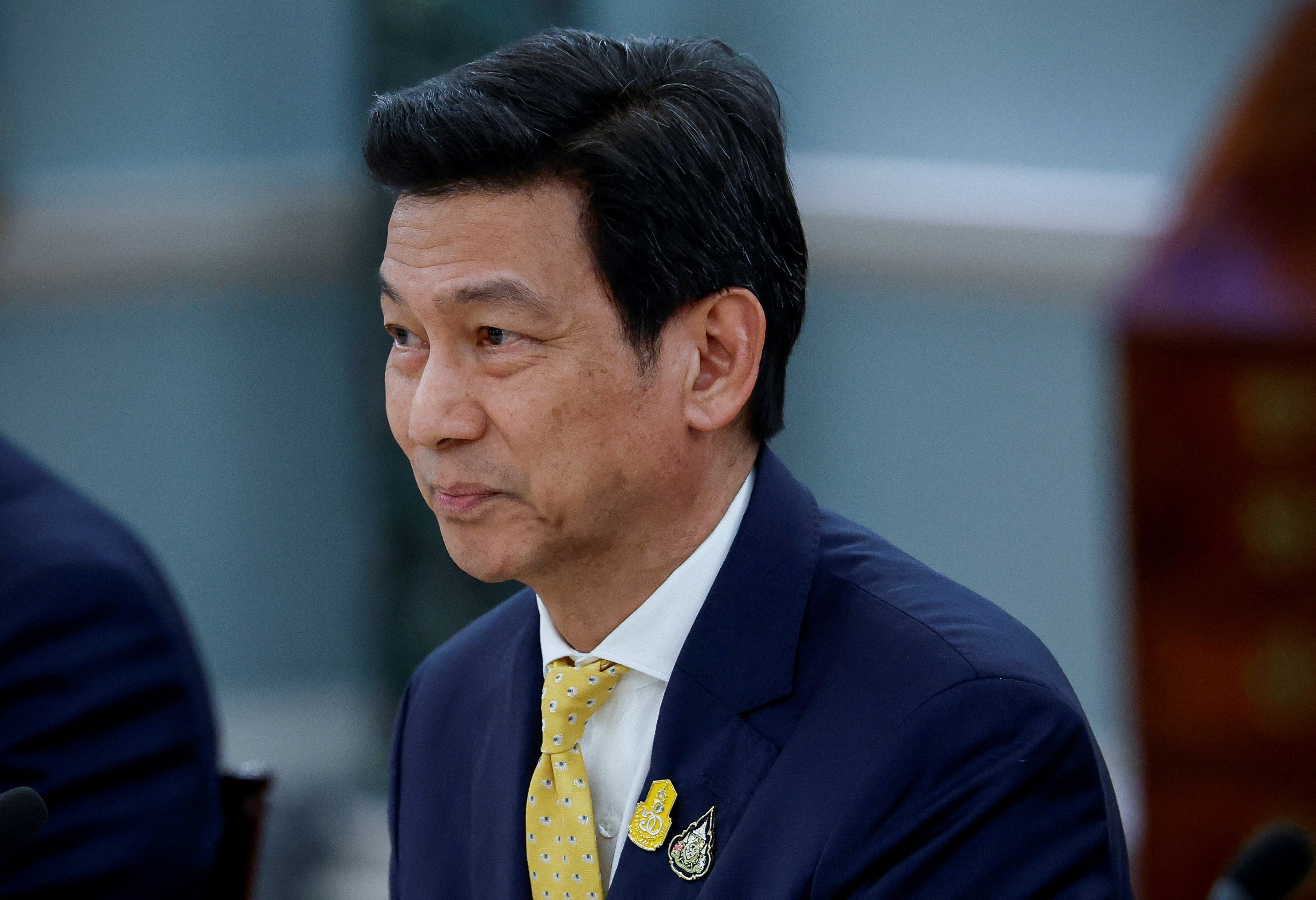
Thai foreign minister resigns after losing deputy PM post
Thai Foreign Minister Parnpree Bahiddha-Nukara has resigned, the government said on Sunday, after losing the position of deputy prime minister in a cabinet reshuffle.
A Hamas delegation will visit Cairo on Monday for talks aimed at securing a ceasefire, a Hamas official told Reuters on Sunday, as mediators stepped up efforts to reach a deal ahead of an Israeli assault on the southern city of Rafah.
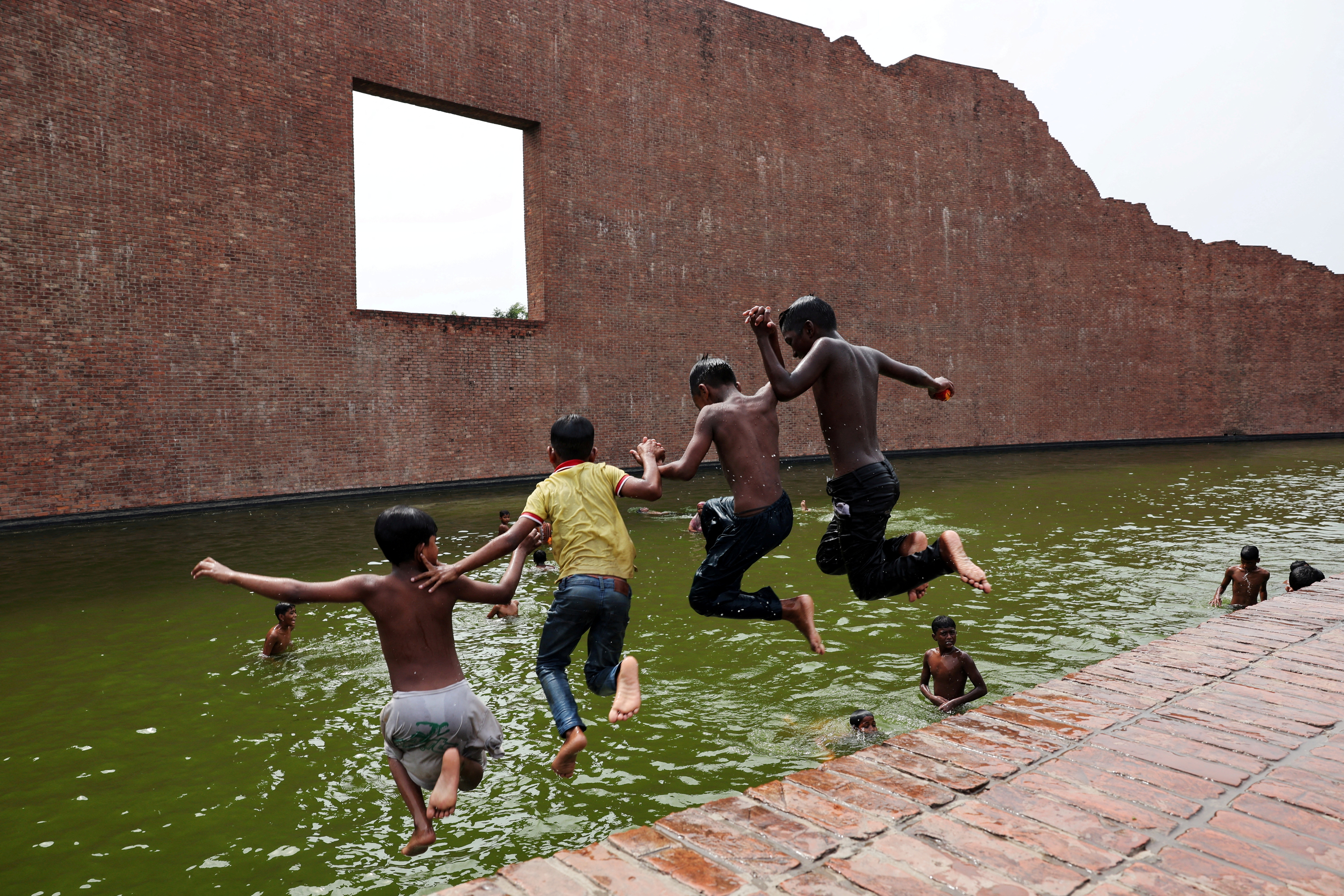
Ukraine-Russia war latest: Tajikistan issues temporary travel ban to Russia; 'well-provisioned' Ukrainian troops could see off summer offensive
The foreign office in Tajikistan advises all citizens to "temporarily refrain" from travelling to Russia - while a thinktank says Ukrainian forces will likely be able to prevent Russian advances in an expected summer offensive. Listen to our latest Sky News Daily podcast as you scroll.
Sunday 28 April 2024 14:45, UK
- Top general: Fighting intensifies in eastern Ukraine as troops fall back
- Tajikistan citizens warned not to travel to Russia
- 'Well-provisioned' Ukrainian troops could prevent Russian advances
- Ukrainian hotel housing 'English-speaking mercenaries' targeted
- Russia destroys 17 drones launched by Ukraine
- Explained : Why is Chasiv Yar the next target for Russia?
- Your questions answered: Will Ukraine launch another spring offensive?
- Listen to the Sky News Daily above and tap here to follow wherever you get your podcasts
- Live reporting by Lauren Russell
Two people have been injured after Russian strikes in the cities of Kupiansk and Vovchansk, local authorities have said.
A 52-year-old was taken to hospital for treatment after being injured, the military administration in Kharkiv said.
Meanwhile, a 36-year-old woman was trapped under rubble and was given medical care after being rescued.
Both cities are in the region of Kharkiv with Vovchansk close to the Russian border and frontline, while Kupiansk is crucial for logistics.
Fighting in eastern Ukraine has worsened, with troops falling back to new positions in at least three places along the frontlines, Ukraine's top general has said.
Oleksandr Syrskyi said in a statement on the Telegram messaging app that his troops had taken up new positions west of the villages of Berdychi, Semenivka and Novomykhailivka in order to conserve their forces.
All three villages are in the Donetsk region of Ukraine.
Mr Syrskyi said Russian troops "achieved certain tactical successes in these areas, but could not gain operational advantages".
Earlier, we reported that the Russian defence ministry claimed that they had taken the village of Novobakhmutivka which is in the same region.
Ukraine has not commented on the claim.
Led by a 68-year-old commander known as Grandpa, Ukraine's Steppe Wolves unit, is made up of volunteers who are considered too old to fight - but still want to.
Staying behind the front line, the mobile artillery unit use truck-mounted rocket launchers, take orders from field commanders and work with other troops, contributing to the war effort despite lacking official support from the military.
"We... get by thanks to the pension fund," commander Oleksandr Taran said.
The unit also depends on donations, in order to repair faulty rounds and capture weapons from the enemy.
Mr Taran said his unit has been attempting to officially join Ukraine's armed forces to directly receive ammunition - and salaries - but has so far been unsuccessful.
Younger men who have been ruled unfit to fight have also joined Mr Taran's unit.
Estimates by the UK's minister for the armed forces say 450,000 Russian military personnel have been killed or wounded in Ukraine.
Leo Docherty told the UK Defence Journal that in addition to those killed, tens of thousands of people have deserted the Russian military since the start of the war in February 2022.
He said he did not know the number of personnel that were killed serving in Russian private military companies like the Wagner Group.
Turning his attention to estimates on weapons, Mr Docherty said over 10,000 Russian armoured vehicles, including nearly 3,000 main battle tanks, 109 fixed wing aircraft, 136 helicopters, 346 unmanned aerial vehicles, 23 naval vessels of all classes, and over 1,500 artillery systems have been destroyed, abandoned or captured by Ukraine in over two years.
The bodies of two people have been discovered in the Tisa River near Ukraine's border with Romania, Ukraine's state border guard reported.
"Despite the lowering of the water level in the Tisa, it is extremely dangerous to swim across it, especially at night," a statement by the border guard said.
"Sharp stones, roots, tree debris, and the swift and cold stream can pose danger to life and health."
The identities of the individuals are yet to be released.
Since the beginning of the war in Ukraine, a total of 24 people have died trying to cross the river, according to the border guard.
Law enforcement agencies have uncovered nearly 400 criminal networks that help individuals evade military service by helping them flee abroad, according to Andriy Demchenko, a spokesperson for the state border guard service.
Russian troops have taken over the village of Novobakhmutivka in Ukraine's Donetsk region, according to the Interfax news agency - citing Russia's defence ministry.
The village is close to the town of Ocheretyne which has become a focal point for fighting in recent days.
Russian forces are also reported to have repelled a series of counterattacks from the Ukrainians near Chasiv Yar, Interfax reported the ministry saying.
This is another key point in the Donetsk region - lying less than 10km from the occupied city of Bakhmut - where the two sides have clashed repeatedly.
Russia's Immortal Regiment March - which takes place on Victory Day to celebrate the defeat of Nazi Germany during the Second World War - has been cancelled for the second year in a row.
Due to take place on 9 May, the march usually sees thousands take to the streets with photographs of veterans, the UK's Ministry of Defence said.
But this year the photographs will be displayed in cars and public locations from 1-11 May.
Victory Day parades in five Russian regions will also not go ahead due to security concerns, according to the MoD.
The regions of Bryansk, Pskov, Ryazan, Kursk and Belgorod are all in western Russia and are deemed vulnerable to Ukrainian uncrewed aerial vehicle (UAV) strikes.
The parade was cancelled last year due to a UAV attack on the Kremlin .
On 7 May, a few days before the parade was scheduled to take place, the presidential inauguration of Vladimir Putin will be held in Moscow.
The MoD said the event may prompt protests.
Russian officials have this morning threatened the West with a "severe" response if frozen Russian assets are confiscated.
Russian Foreign Ministry spokeswoman Maria Zakharova added Russia would never give up territories seized from Ukraine in exchange for the return of frozen assets.
"Our motherland is not for sale," Ms Zakharova wrote on the Telegram messaging app.
"All Russian assets must remain untouched because otherwise there will be a severe response to Western thievery.
"Many in the West have already understood this. Alas, not everyone."
Kremlin spokesperson Dmitry Peskov added that there was lots of Western money that could be targeted in countermeasures put in place by Moscow.
What assets have been frozen, and why sieze them now?
Today's comments from the Kremlin are the latest in a back-and-forth between Russia and the West after the US House of Representatives passed a bill allowing the Biden administration to confiscate Russian assets held in American banks and transfer them to Ukraine.
The assets - worth around $300bn - were frozen at the beginning of the war in Ukraine, as were transactions with Russia's central bank and finance ministry.
So far EU countries and the US have held off confiscating the assets for fears it could escalate tensions - or cause other countries like China and Saudi Arabia to fear for their own European assets.
Ukraine is very likely to stabilise the frontlines in the coming months, with the possibility of starting a counteroffensive later this year.
According to analysts from think tank, Institute for the Study of War (ISW), Russian forces are suffering from widespread tactical failures.
As long as the Russian military continues with these struggles, Ukrainian forces will be able to exploit them, especially with the help of military aid from the US.
If so, a counteroffensive later this year or early next could be possible, the ISW says.
A 57-year-old Russian national has been arrested in connection to the murder of two Ukrainians who died after being stabbed at a German shopping centre.
Upper Bavaria South Police said in a statement yesterday that a 36-year-old Ukrainian man died from his injuries near the Tengelmann Centre in the market town of Murnau, Bavaria.
The second Ukrainian man, 23, died in a nearby hospital later the same evening.
The suspect was arrested at his home, which police said was not far from the crime scene.
It is not clear if the suspect has been charged or not.
Be the first to get Breaking News
Install the Sky News app for free


IMAGES
VIDEO
COMMENTS
Pope Francis Offers to Meet Putin's Top Priest at Moscow Airport—Tass. The head of the Catholic Church has offered to meet with Russia's Patriarch Kirill in Moscow during a scheduled visit to ...
The Pope also cited the halting in Genoa of a convoy carrying arms to Yemen, which the port authorities chose "two or three years ago" to stop. Visit to Moscow first. No trip to Kyiv is planned at the moment, but first, the Pope would prefer to visit Moscow.
VATICAN CITY (CNS) — Pope Francis has not accepted an invitation to travel to Moscow in June to meet with Vladimir Putin, the director of the Holy See press office said. A report on the website ...
Pope Francis on Wednesday spoke to a top member of the Russian Orthodox Church (ROC) days after the pontiff made an intriguing but puzzling comment about the Vatican being involved in a mission to ...
Russia's new ambassador to the Vatican is meeting with Pope Francis for a protocol visit to present his diplomatic credentials. ... Conference of Bishops), welcomes parishioners after celebrating Mass at the Cathedral of the Immaculate Conception in Moscow, on June 29, 2023. Pope Francis' Ukraine peace envoy, Cardinal Matteo Zuppi, is ...
By Reuters. VATICAN CITY — Pope Francis has dismissed reports that he plans to resign in the near future, saying he is on track to visit Canada this month and hopes to be able to go to Moscow ...
An Italian Cardinal tasked by Pope Francis with trying to help end the war in Ukraine will visit Moscow this week as a follow up to his trip to Kyiv, the Vatican said on Tuesday.
Send your thoughts to Letters to the Editor. Pope Francis said he has asked for a meeting in Moscow to help bring about an end to the war and warned that Russian Orthodox Patriarch Kirill, a key ...
The Holy See Press Office confirmed on Tuesday that Cardinal Matteo Maria Zuppi, Archbishop of Bologna and President of the Italian Bishops' Conference, will embark on a visit to Moscow as an envoy of Pope Francis. The visit, scheduled for 28-29 June 2023, aims to strengthen "gestures of humanity that can contribute to promoting a solution to ...
In new interview, Pope Francis says trips to Moscow and Kyiv are 'up in the air' ... Francis said he still plans to visit Kazakhstan for a congress of global religions Sept. 14-16, even though ...
The Pope's peace envoy will visit Moscow this week. From John Allen in Rome. Cardinal Matteo Maria Zuppi poses for photographers after he was elevated to cardinal by Pope Francis, at the Vatican ...
Cardinal Matteo Zuppi is on a mission to Russia as the Pope's envoy for peace. On 29 June he meets with the Russian Patriarch Kirill of Moscow. On Wednesday he held talks with Yuri Ushakov, the presidential advisor for foreign policy and met with Catholic bishops in the Nunciature. By Linda Bordoni and Salvatore Cernuzio.
Cardinal Matteo Zuppi, Pope Francis' envoy and President of the Italian Episcopal Conference (CEI), leads a mass at the Cathedral of the Immaculate Conception in Moscow, Russia June 29, 2023.
Soltanovsky replaced Ambassador Alexander Avdeev, whom Francis met with on Feb. 25, 2022 in a remarkable in-person papal visit to the embassy the day after Moscow's forces invaded Ukraine.
Russia's ambassador to the Holy See, Ivan Soltanovsky, has invited Pope Francis to meet Vladimir Putin in Moscow in June, according to our sources, and the pope is said to have accepted. On the Russian side, the matter is being handled personally by the presidential adviser for diplomatic affairs, Yuri Ushakov .
Vatican Secretary of State. The mission to Moscow will take place soon, this was the initial project. The first phase was already done with the visit of Cardinal Zuppi to Kiev and now this mission ...
Published 4:04 AM PDT, June 27, 2023. ROME (AP) — Pope Francis' peace envoy arrived in Moscow on Tuesday in hopes of helping find "a solution to the tragic current situation" of the war in Ukraine, weeks after making a preliminary visit to Kyiv, the Vatican said. The mission by Cardinal Matteo Zuppi, a veteran of the Catholic Church's ...
The journal said the pope, who repeatedly has been invited to visit Ukraine, would travel to Kyiv immediately after visiting Moscow. After Russia launched its large-scale invasion of Ukraine in February 2022, Pope Francis said he would be willing to accept the invitation of the Ukrainian government to visit, but only if he could visit Moscow as ...
Aug. 31, 2023. Pope Francis has long expressed a desire to visit Russia and China in hopes of healing the church's historical rifts and ensuring the faith's future in the populous East. On ...
German Press Agency. ROME - Pope Francis says he is willing to travel to Ukraine, which is under attack from Russia, but only on the condition that he can also travel to Moscow. "I will go to ...
In an interview with Televisa, Pope Francis has detailed plans for three potential trips in the upcoming year: to Argentina, Belgium for the 600th anniversary of the University of Louvain, and to Polynesia. Of these, the visit to Belgium is confirmed. Polynesia emerges as an unexpected destination, having never been mentioned by the Pope ...
On the contrary, all of the sourceable quotes I have found indicate that peace and the conversion of Russia will occur as soon as the Pope visits Moscow; "Garabandal: The Village Speaks" by Ramón Pérez: The book includes an interview with Conchita González, in which she describes the message she received about the Pope's visit to Moscow.
Pope Francis is traveling to Venice to visit the Holy See's pavilion for this year's Venice Biennale ... A Mexican film has won the top prize at the Moscow International Film Festival which ...
A sailor stands on the deck of the Guyiyang destroyer as members of the public line up to visit the ship in Qingdao, China, on Saturday, April 20. China was marking the 75th anniversary of the ...
People lay flowers at the grave of Russian opposition politician Alexei Navalny following his funeral at the Borisovskoye cemetery in Moscow, Russia, March 1, 2024.
The Russian defence ministry says it destroyed 17 Ukrainian drones, while Ukraine claims Shahed-131/136 type drones launched by Russia caused damage to a hotel and heat-generating infrastructure.